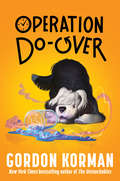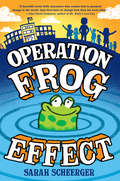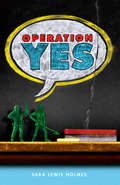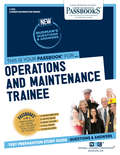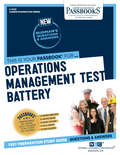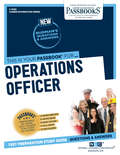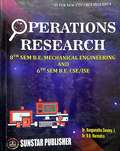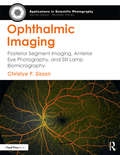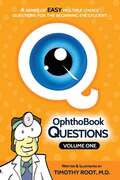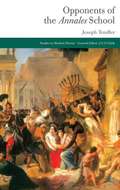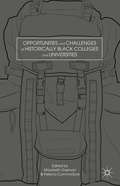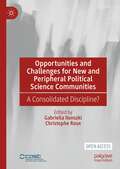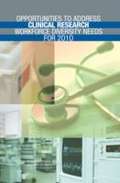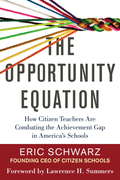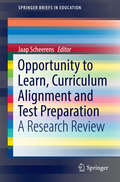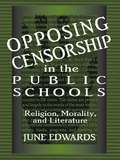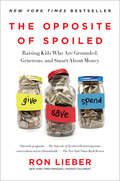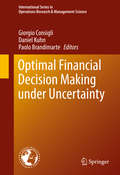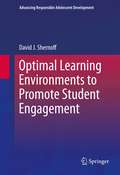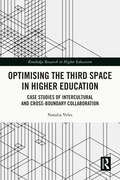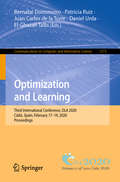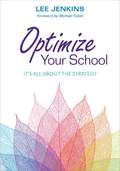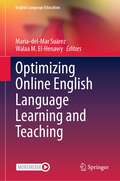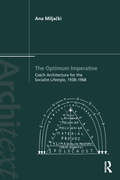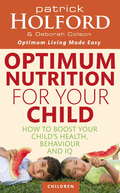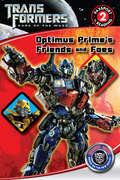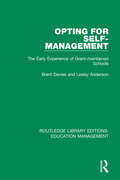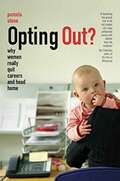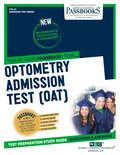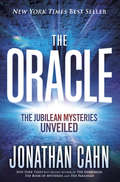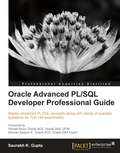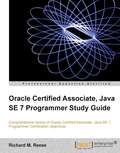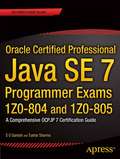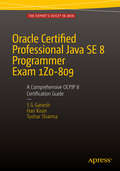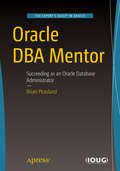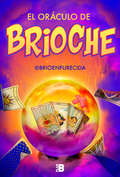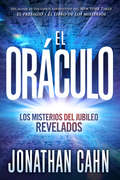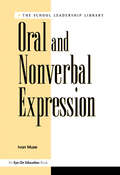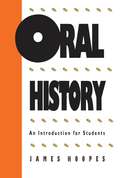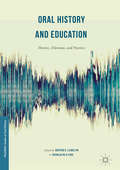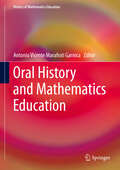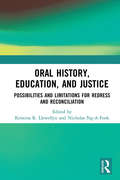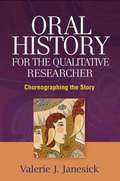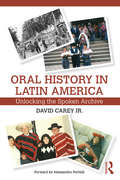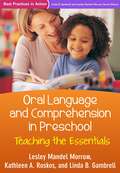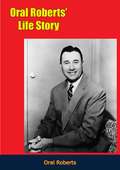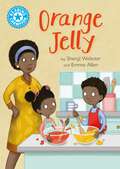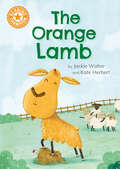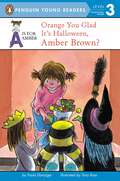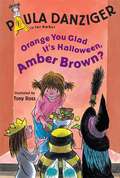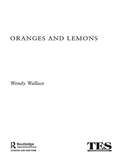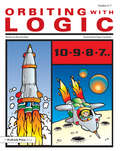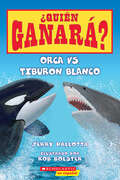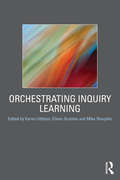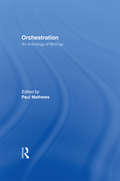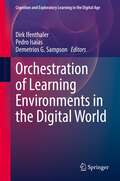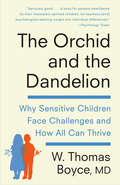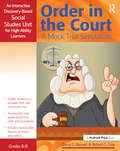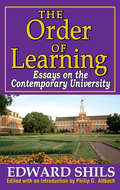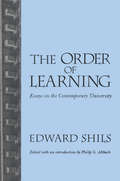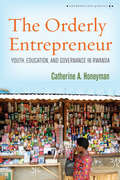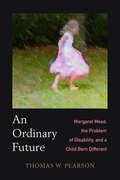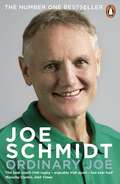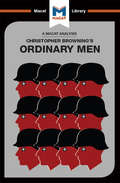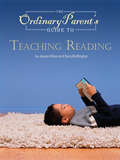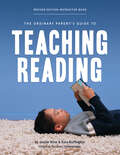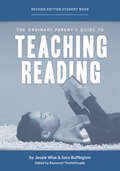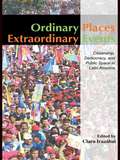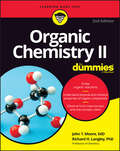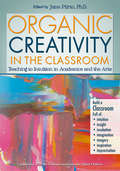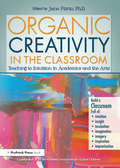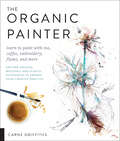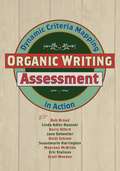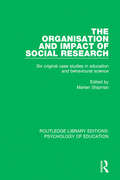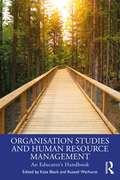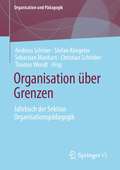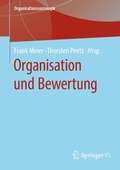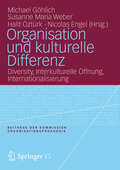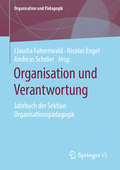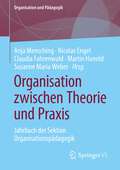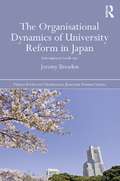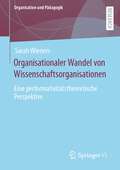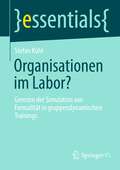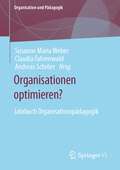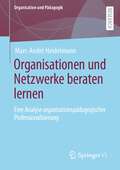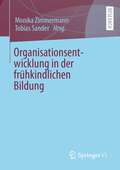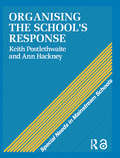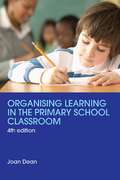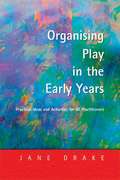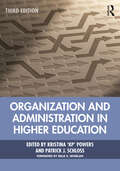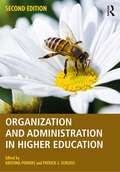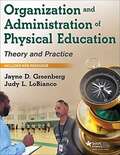- Table View
- List View
Operation Do-Over
by Gordon KormanFrom the New York Times bestselling author of The Unteachables, Gordon Korman, comes a hilarious new high-concept friendship story in the vein of Back to the Future. Perfect for fans of Korman’s Restart. Mason and Ty were once the very best of friends, like two nerdy sides of the same coin . . . until seventh grade, when Ava Petrakis came along. Now Mason can trace everything bad in his life to that terrible fight they had over the new girl. The one thing he’d give anything for is a do-over. But that can’t happen in real life—can it?As a science kid, Mason knows do-overs are impossible, so he can’t believe it when he wakes up from a freak accident and finds himself magically transported back to seventh grade. His parents aren’t yet divorced and his beloved sheepdog is still alive. Best of all, he and Ty haven’t had their falling-out yet.It makes no logical sense, but Mason is determined to use this second chance to not only save his friendship (and his dog!) but do other things differently—like trying out for the football team and giving new friends a chance. There’s just one person he’ll be avoiding at all costs: Ava. But despite his best efforts, will he be able to stop the chain of events that made his previous life implode?
Operation ‘Fox Hunt’
by SiddharthaThoratAn army addicted to power, a soldier prepared for the ultimate sacrifice and a spy who will go to any length to stop him - Operation Fox-Hunt is a tale of sacrifice, camaraderie and betrayal. The Pakistani army, mauled by the Abbottabad raid, decides to create and execute an operation that will get the Pakistani public opinion firmly behind them. Major Shezad Khan, a much decorated officer from the Pakistani army’s elite Special Service Group (SSG) embarks on a mission to attack a strategic target in India. His comrades-in-arms are five ferocious Lashakar-e-Taiba militants. Though he crosses into India through Kashmir, there is one man who has been tasked with the job of ensuring that they don't reach their target. RAW’s Senior Field Agent Sanjay Khanna teams up with Military Intelligence and NSG to thwart the attack. The narrative sweeps across the vast expanses of Tajikistan, the malarial jungles of Bengal, through conflict zones in Baluchistan and the Vale of Kashmir as the two men and their teams race against time. A thrilling finale awaits in the maximum city, Mumbai. Will the Fox-Hunt succeed?
Operation Frog Effect
by Sarah ScheergerIf one small act can create a ripple across the universe . . . what happens when a whole group of kids join together and act? Told in eight perspectives--including one in graphic novel form--Operation Frog Effect is perfect for fans of Andrew Clements, Rob Buyea, and Sarah Weeks, and for anyone who wants to make a difference.Hi--It's us, Ms. Graham's class. We didn't mean to mess things up. But we did. We took things too far, and now Ms. Graham is in trouble--for something we did. We made a mistake. The question is, can we fix it? Ms. Graham taught us that we get to choose the kind of people we want to be and that a single act can create ripples. So get ready, world--we're about to make some ripples.Sincerely,Kayley, Kai, Henry, Aviva, Cecilia, Blake, Sharon, Emily (and Kermit, class frog) Everyone makes mistakes. But what happens when your mistake hurts someone else? Told in eight perspectives--including one in graphic novel form, Operation Frog Effect celebrates standing up and standing together, and tells the unforgettable story of how eight very different kids take responsibility for their actions and unite for a cause they all believe in."A heartfelt novel with complex characters who realize that to promote change in the world, they first have to change how they see each other."--John David Anderson, author of Ms. Bixby's Last Day
Operation Yes
by Sara Lewis HolmesReady? Line UP! FALL IN! And you'll fall for this timely and generous novel set on an Air Force base during the Iraq War, about an amazing teacher and the students she inspires. No one in her sixth-grade class knows quite what to make of Ms. Loupe, with her short hair, her taped square "stage" on the floor, and the interest in improvisational theatre. After all, their school is on an Air Force base--a place that values discipline more than improv. But her students soon come to love her fresh approach; and when her dear brother goes missing in Afghanistan, and Ms. Loupe herself breaks down, they band together to support their teacher. What starts as a class fundraiser expands into a nationwide effort for all injured troops, and an amazing vision of community and hope.
Operations and Maintenance Trainee: Passbooks Study Guide (Career Examination Series)
by National Learning CorporationThe Operations and Maintenance Trainee Passbook® prepares you for your test by allowing you to take practice exams in the subjects you need to study. It provides hundreds of questions and answers in the areas that will likely be covered on your upcoming exam.
Operations Management Test Battery: Passbooks Study Guide (Career Examination Series)
by National Learning CorporationThe Operations Management Test Battery Passbook® prepares you for your test by allowing you to take practice exams in the subjects you need to study. It provides hundreds of questions and answers in the areas that will likely be covered on your upcoming exam, including but not limited to: workplace learning; arithmetic; knowledge of tools; mechanical comprehension; understanding and interpreting written material; understanding and interpreting graphs, charts and tables; industrial problem solving; and more.
Operations Officer: Passbooks Study Guide (Career Examination Series)
by National Learning CorporationThe Operations Officer Passbook® prepares you for your test by allowing you to take practice exams in the subjects you need to study. It provides hundreds of questions and answers in the areas that will likely be covered on your upcoming exam, including but not limited to: administration; administrative supervision; preparation of written material; understanding and interpreting written material; public relations; and other related areas.
Operations Research for 8th Sem B.E Mechanical Engineering and 6th Sem CSE-ISE
by Ranganatha Swamy L. B. K. NarendraThe author of the book by Dr. Ranganatha Swamy. L. and Dr. B.K. Narendra and published by Sunstar Publisher. This book elucidates the concepts and applications of operations research. Written in a lucid, well-structured and easy-to-understand language, the key topics are explained with adequate depth and details. It is divided into 5 modules. A wide range of solved examples and end-of-chapter exercises makes this book an ideal companion for active learners.
Ophthalmic Imaging: Posterior Segment Imaging, Anterior Eye Photography, and Slit Lamp Biomicrography (Applications in Scientific Photography)
by Christye SissonOphthalmic Imaging serves as a reference for the practicing ophthalmic imager. Ophthalmic imaging combines photography and diagnostic imaging to provide insight into not only the health of the eye, but also the health of the human body as a whole. Ophthalmic photographers are specialists in imaging through and in the human eye, one of the only parts of the body where the circulation and nervous system is visible non-invasively. With technical perspective as context, this book will provide instructional techniques as well as the background needed for problem solving in this exciting field. The book covers all aspects of contemporary ophthalmic imaging and provides image support to ophthalmologists and sub-specialties including retinal specialists, corneal specialists, neuro-ophthalmologists, and ocular oncologists. This text serves as a reference for the practicing ophthalmic imager, or to imagers just getting started in the field.
Ophthalmology Made Ridiculously Simple
by Stephen Goldberg William TrattlerAll the ophthalmology most vital for the non-ophthalmologist. This book gives strong emphasis to common disorders, their diagnosis and management at the level of the non-ophthalmologist - up to the point of referral. Included among these are refractive problems, ocular inflammation, trauma, amblyopia, strabismus, and a variety of additional disorders that causes diminished vision or ocular discomfort. Includes interactive download from MedMaster's website with atlas of ophthalmic diseases, as well as movies of common ocular surgical procedures (cataract surgery, lens implantation, Lasik, Lasek, intacs surgery).
Ophthobook Questions - Vol. 1 (Ophthobook Questions Ser.)
by Timothy RootYou've just discovered the coolest question book ever written for the beginning eye student! This book contains over 300 multiple choice questions, sampling every subspecialty within the eye field. It is perfect for the struggling medical student, optometrist, or technician trying to get ahead! 1. These questions are written at a BASIC level for the beginning eye student ... no minutia here! 2. Each question is followed by an explanatory paragraph so you get immediate feedback and learn as you progress! 3. You’ll find hundreds of pictures, cartoons, and mnemonics that improve your retention. Never has studying been this much FUN!
OPN 101 Adhyayan Kaushalyancha Adhishthan Abhyaskram F.Y.B.A. - Y.C.M.O.U
by Usha Khire Anjali Saygavakar Sau. Vadadekar Rajendra Vadanere Prof. Pande Shree. KumbharOPN 101 Adhyayan Kaushalyancha Adhishthan Abhyaskram text book for F.Y.B.A from Yashwantrao Chavan Maharashtra Open University, Nashik in Marathi.
Opponents of the Annales
by Joseph TendlerBased on analysis of archival and published sources, Opponents of the Annales School examines for the first time those who have dared to criticise and ignore one of the most successful currents of thought in modern historiography. It offers an original contribution to the understanding of an unavoidable chapter in modern intellectual history.
Opportunities And Challenges At Historically Black Colleges And Universities
by Marybeth Gasman Felecia CommodoreIn this edited collection, the authors grapple with both the strengths and challenges that HBCUs face as the nation's demographics change, from their place in American society and growing diversity on HBCU campuses to class and elitism issues to study abroad and honors programs.
Opportunities and Challenges for New and Peripheral Political Science Communities: A Consolidated Discipline?
by Gabriella Ilonszki Christophe RouxThis open access book offers an updated examination of the institutionalisation of political science in sixteen latecomer or peripheral countries in Europe. Its main theme is how political science as a science of democracy is influenced and how it responds to the challenges of the new millennium. The chapters, built upon a common theoretical framework of institutionalisation, are evidence-based and comparative. Overall, the book diagnoses diversity among the country cases due to their take-off points and varied political and economic trajectories.
Opportunities to Address Clinical Research Workforce Diversity Needs for 2010
by National Research Council Institute of Medicine of the National AcademiesBased on a 2003 workshop, this study describes current public and private programs and recommends ways to recruit and retain more women and underrepresented minorities into clinical research, especially physician-scientists and nurses. Federal sponsors should improve data collection, evaluate existing training programs, and increase the diversity of study section review panels. Public and private sponsors should create funding mechanisms with flexible career paths, and universities and professional societies should both play enhanced roles in fostering diversity. A significant push is needed to recruit minorities into nursing and provide more clinical research training for nurse-scientists, nursing students, and nursing faculty.
The Opportunity Equation
by Eric Schwarz Lawrence H. SummersSchwarz, founder of the groundbreaking Citizen Schools program, shares his vision for reducing inequality by pairing successful adults with low-income students. Parental wealth now predicts adult success more than at any point in the last hundred years. And yet as debates about education rage on, and wealth-based achievement gaps grow, too many people fix the blame on one of two convenient scapegoats: poverty or our public schools. But in fact, low-income kids are learning more now than ever before. The real culprit for rising inequality, Eric Schwarz argues in The Opportunity Equation, is that wealthier kids are learning much, much more--mostly outside of school. In summer camps, robotics competitions, sessions with private tutors, and conversations around the dinner table, children from more affluent families build the skills and social networks that propel them to success. In The Opportunity Equation, Schwarz tells the story of how he founded the pioneering Citizen Schools program to combat rising inequality by bringing these same opportunities to children who don't have access to them. By increasing learning time in schools and harnessing the power of an army of volunteers with various skills and professional backgrounds--lawyers, engineers, carpenters, journalists, nonprofit leaders, and grandmothers who sew--Citizen Schools offers after-school apprenticeships that provide the building blocks for adult success. Recounting the triumphs and setbacks he's encountered in implementing the program, Schwarz shows that some of the nation's lowest-performing schools in its lowest-income cities can, with help, provide their students with many of the same experiences wealthy communities afford to their children. The results have been proven: in the dozen school districts, from New York to Oakland, that have partnered with Citizen Schools, rates of attendance, proficiency, graduation, and college acceptance have gone up--and the achievement gap closes. At a time when many stakeholders in the education debates are looking for new, silver-bullet shortcuts to educational excellence, Schwarz shows that the best solution is human-centered, rooted in the American tradition of citizen voluntarism, and, most important, achievable. We can provide quality education for all students and close the opportunity gap in this country--and we can do it together.
Opportunity to Learn, Curriculum Alignment and Test Preparation
by Jaap ScheerensThis book provides a review of the effectiveness of Opportunity to Learn (OTL) operationalized as the association between OTL and student achievement. In addition, it presents an elaborate conceptual map in which OTL is regarded as part of a larger concept of curriculum alignment. Major components of this framework are national goals and standards, school curricula, formative tests, textbooks, actual delivery of content as part of teaching, and summative tests and examinations. Alignment between educational goals, intended and implemented curricula, and educational outcomes is considered an important prerequisite for effective education. The expectation is that better alignment leads to better student performance. The concept of OTL is commonly used to compare content covered, as part of the implemented curriculum, with student achievement. As such it is to be seen as a facet of the broader concept of "alignment". As it comes to enhancing OTL in educational policy and practice, proactive curriculum development is compared to a more retroactive orientation. Legitimate forms of test and examination preparation belong to this retroactive orientation, and are seen as favorable conditions for optimizing OTL. This book reviews the research evidence on the effects of OTL on student achievement by means of detailed descriptions of key-empirical studies, a review of meta-analyses, a "vote count" syntheses of 51 empirical studies, conducted between 1995 and 2015, and a secondary analysis based on TIMSS 2011, and PISA 2012 data. It concludes that the effect size of OTL, at about . 30, is modest, but comparable in size to other effectiveness-enhancing conditions in schooling. The final chapter of the book provides suggestions for educational policy and practice to further optimize OTL.
Opposing Censorship in Public Schools: Religion, Morality, and Literature
by June EdwardsIn the past several years, hundreds of challenges a year to books used in public schools have been reported across the nation. Most of these have come from the Religious Right. This book confronts the attacks on public education and commonly used literature books by challenging the religious assumptions, the biblical interpretations, and the intimidation tactics of the Religious Right. Part I counters the claims of these censors by presenting opposing views on democracy, secular humanism, religion, the Bible, morality, and the purposes of literature. In Part II, six books frequently taught in high school classes are analyzed. Edwards shows why they have been challenged by the Religious Right, and presents a case for their moral and religious virtues as well as their literary worth. The book differs from other anti-censorship works because it deals primarily and directly with the religious and moral aspects that educators often tend to avoid. This book offers teachers and school administrators scholarly conterarguments that can help confront with literature challenges from the Religious Right.
The Opposite of Spoiled
by Ron LieberWe may not realize it, but children are hyperaware of money. They have scores of questions about its nuances that parents often don't answer, or know how to answer well. But for Ron Lieber, a personal finance columnist and father, good parenting means talking about money with our kids much more often. When parents avoid these conversations, they lose a tremendous opportunity--not just to model important financial behaviors, but also to imprint lessons about what their family cares about most.Written in a warm, accessible voice, grounded in real-world stories from families with a range of incomes, The Opposite of Spoiled is a practical guidebook for parents that is rooted in timeless values. Lieber covers all the basics: the best ways to handle the tooth fairy, allowance, chores, charity, savings, birthdays, holidays, cell phones, splurging, clothing, cars, part-time jobs, and college tuition. But he also identifies a set of traits and virtues--like modesty, patience, generosity, and perspective--that parents hope their young adults will carry with them out into the world.In The Opposite of Spoiled, Ron Lieber delivers a taboo-shattering manifesto that will help every parent embrace the connection between money and values to help them raise young adults who are grounded, unmaterialistic, and financially wise beyond their years.
Optimal Financial Decision Making under Uncertainty
by Giorgio Consigli Daniel Kuhn Paolo BrandimarteThe scope of this volume is primarily to analyze from different methodological perspectives similar valuation and optimization problems arising in financial applications, aimed at facilitating a theoretical and computational integration between methods largely regarded as alternatives. Increasingly in recent years, financial management problems such as strategic asset allocation, asset-liability management, as well as asset pricing problems, have been presented in the literature adopting formulation and solution approaches rooted in stochastic programming, robust optimization, stochastic dynamic programming (including approximate SDP) methods, as well as policy rule optimization, heuristic approaches and others. The aim of the volume is to facilitate the comprehension of the modeling and methodological potentials of those methods, thus their common assumptions and peculiarities, relying on similar financial problems. The volume will address different valuation problems common in finance related to: asset pricing, optimal portfolio management, risk measurement, risk control and asset-liability management. The volume features chapters of theoretical and practical relevance clarifying recent advances in the associated applied field from different standpoints, relying on similar valuation problems and, as mentioned, facilitating a mutual and beneficial methodological and theoretical knowledge transfer. The distinctive aspects of the volume can be summarized as follows: Strong benchmarking philosophy, with contributors explicitly asked to underline current limits and desirable developments in their areas. Theoretical contributions, aimed at advancing the state-of-the-art in the given domain with a clear potential for applications The inclusion of an algorithmic-computational discussion of issues arising on similar valuation problems across different methods. Variety of applications: rarely is it possible within a single volume to consider and analyze different, and possibly competing, alternative optimization techniques applied to well-identified financial valuation problems. Clear definition of the current state-of-the-art in each methodological and applied area to facilitate future research directions.
Optimal Learning Environments to Promote Student Engagement
by David J. ShernoffOptimal Learning Environments to Promote Student Engagement analyzes the psychological, social, and academic phenomena comprising engagement, framing it as critical to learning and development. Drawing on positive psychology, flow studies, and theories of motivation, the book conceptualizes engagement as a learning experience, explaining how it occurs (or not) and how schools can adapt to maximize it among adolescents. Examples of empirically supported environments promoting engagement are provided, representing alternative high schools, Montessori schools, and extracurricular programs. The book identifies key innovations including community-school partnerships, technology-supported learning, and the potential for engaging learning opportunities during an expanded school day. Among the topics covered: Engagement as a primary framework for understanding educational and motivational outcomes.Measuring the malleability, complexity, multidimensionality, and sources of engagement.The relationship between engagement and achievement.Supporting and challenging: the instructor's role in promoting engagement.Engagement within and beyond core academic subjects.Technological innovations on the engagement horizon. Optimal Learning Environments to Promote Student Engagement is an essential resource for researchers, professionals, and graduate students in child and school psychology; social work; educational psychology; positive psychology; family studies; and teaching/teacher education.
Optimising the Third Space in Higher Education: Case Studies of Intercultural and Cross-Boundary Collaboration (Routledge Research in Higher Education)
by Natalia VelesDrawing on an empirical study of the cross-boundary, cross-campus, and intercultural collaborations between professional and academic staff, at both an Australian and a Singaporean university, this book demonstrates the potential of third space collaboration in higher education. Through a multi-case study methodology, the author draws on the antecedent resources of spatial theory to investigate how staff working together, crossing, and transcending various traditional and imaginary boundaries created innovative boundary practices while successfully completing the university projects. The third space projects under investigation range from increasing the academic research visibility and commercialisation of a research solution to expanding the educational choices for students in one geographical region and developing a research culture in one international campus. The findings present practical approaches to strengthening collegiality and professional partnering, challenging the reader to reflect on potential strategies that will apply to their own work environments. This book will be a useful resource for researchers in higher education, particularly those interested in the third space theory and practice, university collaboration, collaborative capital, and impacts of diversification of university staff roles and identities.
Optimization and Learning: Third International Conference, OLA 2020, Cádiz, Spain, February 17–19, 2020, Proceedings (Communications in Computer and Information Science #1173)
by Bernabé Dorronsoro Patricia Ruiz El-Ghazali Talbi Juan Carlos de la Torre Daniel UrdaThis volume constitutes the refereed proceedings of the Third International Conference on Optimization and Learning, OLA 2020, held in Cádiz, Spain, in February 2020. The 23 full papers were carefully reviewed and selected from 55 submissions. The papers presented in the volume focus on the future challenges of optimization and learning methods, identifying and exploiting their synergies,and analyzing their applications in different fields, such as health, industry 4.0, games, logistics, etc.
Optimize Your School: It′s All About the Strategy
by Lyle Lee JenkinsLead the change that you want to see in your school! Is your school or district heading in the right direction? In this essential guide for leaders, Lee Jenkins shows how to unite and energize your team as never before, while helping your students to love learning and crave achievement. A trusted advisor to numerous districts, Jenkins knows how to successfully transform school culture – for the long-term. Beginning with an introduction from scholar Michael Fullan, each chapter presents compelling insights and strategies for leaders, addressing how to Evolve your leadership style to guide, empower and serve Apply the principles of continuous strategic improvement as an antidote to win/lose approaches to school accountability Develop a healthy, positive culture of achievement by deeply engaging your students in their own progress and success Turn to this resource and prepare to lead positive change, from the classroom to the staff room and beyond. "This book creates a whole picture approach to school improvement while shunning the current top down model in favor of a school-led plan. The approach not only increases school performances, but values the school-level leadership and instructional faculty." Amanda Mayeaux, Career Management Specialist Iberville Parish Schools "If your district is ready to move from arbitrary to observable, from fractured to focused, and from silos to systems, you’ve found the book that can move entire organizations from a goal mindset to a growth mindset. Lee Jenkins provides common-sense strategies that impact the efficiency and effectiveness of our classrooms, with a clear focus on student growth. In an educational era saturated with the latest remedy for what ails us, Lee provides a refreshing cure by offering simple solutions for lasting change." Dr. Jane Stavem, Associate Superintendent for Instruction Lincoln Public Schools, Lincoln, NE
Optimize Your School: It′s All About the Strategy
by Lyle Lee JenkinsLead the change that you want to see in your school! Is your school or district heading in the right direction? In this essential guide for leaders, Lee Jenkins shows how to unite and energize your team as never before, while helping your students to love learning and crave achievement. A trusted advisor to numerous districts, Jenkins knows how to successfully transform school culture – for the long-term. Beginning with an introduction from scholar Michael Fullan, each chapter presents compelling insights and strategies for leaders, addressing how to Evolve your leadership style to guide, empower and serve Apply the principles of continuous strategic improvement as an antidote to win/lose approaches to school accountability Develop a healthy, positive culture of achievement by deeply engaging your students in their own progress and success Turn to this resource and prepare to lead positive change, from the classroom to the staff room and beyond. "This book creates a whole picture approach to school improvement while shunning the current top down model in favor of a school-led plan. The approach not only increases school performances, but values the school-level leadership and instructional faculty." Amanda Mayeaux, Career Management Specialist Iberville Parish Schools "If your district is ready to move from arbitrary to observable, from fractured to focused, and from silos to systems, you’ve found the book that can move entire organizations from a goal mindset to a growth mindset. Lee Jenkins provides common-sense strategies that impact the efficiency and effectiveness of our classrooms, with a clear focus on student growth. In an educational era saturated with the latest remedy for what ails us, Lee provides a refreshing cure by offering simple solutions for lasting change." Dr. Jane Stavem, Associate Superintendent for Instruction Lincoln Public Schools, Lincoln, NE
Optimizing Online English Language Learning and Teaching (English Language Education #31)
by Maria-del-Mar Suárez Walaa M. El-HenawyThis book focuses on English as a Foreign Language (EFL) and provides advice on how to approach EFL teaching in the online context. Coronavirus has accelerated e-learning significantly and has highlighted the need of appropriate web tools that will allow teachers to present their material either synchronously or asynchronously, while also adequately assess their students. At the same time, there is a need of tools that can engage the students and motivate them to actively participate in the lesson. With e-learning being a rather new challenge for both teachers and students, this book provides research- and practice- based chapters with strategies, techniques, approaches, and methods which have proven to be successful in e-learning environments, maximizing their impact . Apart from presenting research results with strong pedagogical implications on online or blended English language learning and teaching, the book also trains educators on utilizing online tools and managing online learning environments and platforms.
The Optimum Imperative: Czech Architecture for the Socialist Lifestyle, 1938–1968 (Architext)
by Ana MiljackiThe Optimum Imperative examines architecture’s multiple entanglements within the problematics of Socialist lifestyle in postwar Czechoslovakia. Situated in the period loosely bracketed by the signing of the Munich accords in 1938, which affected Czechoslovakia’s entrance into World War II, and the Warsaw Pact troops’ occupation of Prague in 1968, the book investigates three decades of Czech architecture, highlighting a diverse cast of protagonists. Key among them are the theorist and architect Karel Honzík and a small group of his colleagues in the Club for the Study of Consumption; the award-winning Czechoslovak Pavilion at the 1958 World Expo in Brussels; and SIAL, a group of architects from Liberec that emerged from the national network of Stavoprojekt offices during the reform years, only to be subsumed back into it in the wake of Czechoslovak normalization. This episodic approach enables a long view of the way that the project of constructing Socialism was made disciplinarily specific for architecture, through the constant interpretation of Socialist lifestyle, both as a narrative framework and as a historical goal. Without sanitizing history of its absurd contortions in discourse and in daily life, the book takes as its subject the complex and dynamic relationships between Cold War politics, state power, disciplinary legitimating narratives, and Czech architects’ optimism for Socialism. It proposes that these key dimensions of practicing architecture and building Socialism were intertwined, and even commensurate at times, through the framework of Socialist lifestyle.
Optimum Nutrition For Your Child: How to boost your child's health, behaviour and IQ
by Patrick Holford BSc, DipION, FBA Optimum Nutritio Deborah ColsonPatrick Holford illustrated the connection between nutrition and all aspects of health in his best-selling book THE OPTIMUM NUTRITION BIBLE. In OPTIMUM NUTRITION FOR YOUR CHILD, he reveals how crucial optimum nutrition is for children's general health and development, as well as their behaviour and IQ. He explains why certain foods are so beneficial and why others are damaging, and enables you to identify common problems in children which can be improved or solved with the right foods and supplements. With invaluable advice on getting children to eat healthy food, food plans and practical tips, this book is the definitive guide for parents.
Optimus Prime's Friends and Foes (Transformers )
by Katharine TurnerIn this Level 2 reader based on Transformers: Dark of The Moon, Optimus Prime is on a quest for peace, but the Decepticons have other plans. Can Optimus Prime and his friends defeat their robot foes? © Hasbro
Opting for Self-management: The Early Experience of Grant-maintained Schools (Routledge Library Editions: Education Management #6)
by Brent Davies Lesley AndersonOriginally published in 1991. This book examines the early experiences of the first grant-maintained Schools and considers the challenges facing the self-managing school in the 1990s. The book looks at the context of the change of status, what it means to be grant-maintained, and reviews the types of schools that have opted out so far and their reasons for doing so. A section of specially commissioned case studies written by headteachers offers accounts of how each school has coped with the move to grant-maintained status. The book provides a practical and realistic appraisal of grant-maintained schools and their move towards self-management, exploring both the advantages and the disadvantages of opting out of local authority control.
Opting Out?: Why Women Really Quit Careers And Head Home
by Pamela StoneNoting a phenomenon that might seem to recall a previous era, The New York Times Magazine recently portrayed women who leave their careers in order to become full-time mothers as “opting out.” But, are high-achieving professional women really choosing to abandon their careers in order to return home? This provocative study is the first to tackle this issue from the perspective of the women themselves. Based on a series of candid, in-depth interviews with women who returned home after working as doctors, lawyers, bankers, scientists, and other professions, Pamela Stone explores the role that their husbands, children, and coworkers play in their decision; how women’s efforts to construct new lives and new identities unfold once they are home; and where their aspirations and plans for the future lie. What we learn―contrary to many media perceptions―is that these high-flying women are not opting out but are instead being pushed out of the workplace. Drawing on their experiences, Stone outlines concrete ideas for redesigning workplaces to make it easier for women―and men―to attain their goal of living rewarding lives that combine both families and careers.
OPTOMETRY ADMISSION TEST: Passbooks Study Guide (Admission Test Series)
by National Learning CorporationThe Admission Test Series prepares students for entrance examinations into college, graduate and professional school as well as candidates for professional certification and licensure. The Optometry Admission Test (OAT) Passbook® prepares you by sharpening the skills and abilities necessary to succeed on your upcoming entrance exam. It provides a series of informational texts as well as hundreds of questions and answers in the areas that will likely be covered on your upcoming exam, including but not limited to: biology; chemistry; scientific reading comprehension; quantitative reasoning; physics; and more.
The Oracle: The Jubilean Mysteries Unveiled
by Jonathan CahnNew York Times and USA Today Best Seller!Discover the amazing secret of the ages...and the mystery of your life!The Oracle will reveal the mystery behind everything...the past, the present, current events, even what is yet to come! Open the seven doors of revelation—and prepare to be blown away!Jonathan Cahn, author of the New York Times best sellers The Harbinger, The Mystery of the Shemitah, The Book of Mysteries, and The Paradigm, now unveils The Oracle, in which he opens up the Jubilean mysteries and a revelation so big that it lies behind everything from the rise and fall of nations and empires (even America), to the current events of our day, to the future, to end-time prophecy, and much more. Could an ancient prophecy and a mysterious ordinance given in a Middle Eastern desert over three thousand years ago be determining the events of our day?Could some of the most famous people of modern history and current events be secretly linked to this mystery-even a modern president of the United States?Could this ancient revelation pinpoint the events of our times down to the year, month, and day of their occurring?Could a mysterious phenomenon be manifesting on the world stage on an exact timetable determined from ancient times?Could these manifestations have altered-and now be altering-the course of world events? Jonathan Cahn takes the reader on a journey to find the man called the Oracle. One by one each of the Jubilean mysteries will be revealed through the giving of a vision. The Oracle will uncover the mysteries of The Stranger, The Lost City, The Man With the Measuring Line, The Land of Seven Wells, The Birds, The Number of the End, The Man in the Black Robe, The Prophet's Song, The Matrix of Years, The Day of the Lions, The Awakening of the Dragon, and much more. The reader will discover the ancient scrolls that contain the appointed words that have determined the course of world history from the onset of modern times up to our day. The revelation is so big that it will involve and open up the mysteries of everything and everyone from Mark Twain to Moses, from King Nebuchadnezzar to Donald Trump, from the fall of empires to the rise of America, from a mystery hidden in a desert cave to another in an ancient scroll, from the palace of the Persian Empire to the US Senate, from the Summer of Love to the Code of Babylon, and much, much more. Ultimately the Oracle will reveal the secret that lies behind end-time prophecy and the mystery of the end of the age. As with The Harbinger and The Book of Mysteries, Cahn reveals the mysteries through a narrative. A traveler is given seven keys; each will open up one of seven doors. Behind each door lies a stream of mysteries. The reader will be taken on a journey of angels and prophetic revelations waiting to be discovered behind each of the seven doors-the ancient secrets that lie behind the world-changing events of modern times-and revelations of what is yet to come. Hailed as a mind-blowing masterpiece, The Oracle will reveal mysteries that are absolutely real, amazing, stunning, mind-blowing, and life-changing.Prepare to be blown away.Also Available in SpanishISBN-13: 978-1-62999-267-9E-Book ISBN: 978-1-62999-268-6
Oracle Advanced PL/SQL Developer Professional Guide
by Saurabh K. GuptaThis book is packed with real world examples that cover all the advanced features of PL/SQL. In turn, each major certification topic is covered in a separate chapter that makes understanding concepts easier. At the end of each chapter, you will find plenty of practice questions to strengthen and test your learning.If you are a PL/SQL developer looking for deeper insight and a move from mid-level programmer to professional database developer, then this is the best guide for you. This book is also an ideal guide for all the Associate level PL/SQL programmers who are preparing for the Professional 1Z0-146 certification. This book assumes you have prior knowledge of PL/SQL programming.
Oracle Certified Associate, Java SE 7 Programmer Study Guide
by Richard M. ReeseEach objective is addressed using a series of programming examples. When the topic impacts memory, stack and heap illustrations are used to provide the reader with a more in depth understanding of the topic. At the end of each chapter, a series of sample questions are provided to reinforce your knowledge. This book is designed to help you prepare for the Oracle Certified Associate, Java SE 7 Programmer Certification exam (1Z0-803) and gain confidence in your understanding and use of Java. Basic knowledge of Java programming is expected.
Oracle Certified Professional Java SE 7 Programmer Exams 1Z0-804 and 1Z0-805
by S G Ganesh Tushar SharmaOracle Certified Professional Java SE 7 Programmer Exams 1Z0-804 and 1Z0-805 is a concise, comprehensive, step-by-step, and one-stop guide for the Oracle Certified Professional Java SE 7 Programmer Exam. The first two chapters set the stage for exam preparation and let the reader get started quickly. The first chapter answers frequently asked questions about the OCPJP exam. This book assumes that the reader is already familiar with Java fundamentals which is in line with the prerequisite of having a OCAJP certification. The book sports considerable supportive material to help the reader in effective exam preparation in the form of appendices: 2 mock tests to give the reader a sense of a real-exam. An instant refresher summarizing the most important concepts (with tips on answering questions) to revise just before the exam. This book will be a delectable read for any OCPJP aspirant because of its simple language, example driven approach, and easy-to-read style. Further, given its 100% focus on the exam and helpful supportive material, this book is clearly an attractive buy to OCPJP aspirants worldwide. What you'll learn In-depth coverage of all 13 exam topics for the certification. The book covers programming concepts succinctly with numerous illustrative programming and real-world examples. These examples will help the reader quickly internalize the discussed concepts. The reader will clearly understand the scope and objectives of the exam, the technical topics covered in the exam, and type and level-of-difficulty of the exam questions. With this, the reader will clearly know what's exactly required for passing the exam. Review questions tune the reader to an "exam mindset". By making mistakes and reading the detailed explanations for the answers, the reader will be better prepared for getting certified. Attempting the practice questions and mock test will help the reader gain necessary confidence to clear the exam. Who this book is for This book is targeted primarily at students and programmers who want to crack the OCPJP exam. Trainers and teachers can use this book as training material for OCPJP exam preparation. This book is also useful to readers who want to refresh their knowledge in Java programming or gain better understanding on using various Java APIs. Table of Contents 1. The OCPJP 7 Exam: Frequently Asked Questions (FAQ) 2. Pretest 3. Java Class Design 4. Advanced Class Design 5. Object-Oriented Design Principles 6. Generics and Collection 7. String Processing 8. Java I/O Fundamentals 9. Java File I/O (NIO. 2) 10. Building Database Applications with JDBC 11. Exceptions and Assertions 12. Localization 13. Threads 14. Concurrency 15. OCPJP 7 Quick Refresher 16. Appendix A: Exam Topics 17. Appendix B: Mock Exam 1 18. Appendix C: Mock Exam 2
Oracle Certified Professional Java SE 8 Programmer Exam 1Z0-809
by S G Ganesh Hari Kiran Tushar SharmaThis book offers a comprehensive guide for the Oracle Certified Professional Java SE 8 Programmer Exam. It starts by answering frequently asked exam questions followed by full coverage of exam topics with numerous programming and real-world examples. Each chapter ends with practice exam questions and a quick summary that reviews key concepts covered in the chapter from the OCPJP exam perspective. The book ends with a full-length, mock exam to ensure you have enough practice before actually taking the exam. If you are an OCPJP 8 exam aspirant, this book is certainly for you. The book assumes you''re already familiar with Java fundamentals, which is in keeping with the prerequisite for having a OCAJP 8 certification. You''ll enjoy reading Oracle Certified Professional Java SE 8 Programmer Exam 1Z0-809 because of its clear, simple language; example driven approach; easy-to-read style; and complete focus on the exam requirements. A few of the key features of the book include: In-depth and 100% coverage of all 12 exam topics for the certification Numerous illustrative programming and real-world examples Hundreds of practice exam questions (including a full-length mock exam) What you''ll learn * Have the necessary knowledge to clear the exam since 100% of the exam topics are covered to the required depth * Clearly understand the scope and objectives of the exam, the technical topics covered in the exam, and type and level-of-difficulty of the exam questions (in short, you will clearly know what''s exactly required for passing the exam) * Get into an "exam mindset" by trying out hundreds of practice exam questions. Who this book is for This book is targeted primarily at developers who want to crack the OCPJP 8 exam. Trainers and teachers can use this book as training material for OCPJP 8 exam preparation. This book is also useful to readers who want to refresh their knowledge in Java programming or gain better understanding on using various Java APIs. Table of Contents Table of Contents The OCPJP 8 Exam: Frequently Asked Questions (FAQ) 1. 1. Oracle Java Certifications: Overview 1. 2. The OCPJP 8 Exam 1. 3. Taking the OCPJP 8 Exam Java Class Design 2. 1. Implement encapsulation 2. 2. Implement inheritance including visibility modifiers and composition 2. 3. Implement polymorphism 2. 4. Override methods from Object class 2. 5. Create and use singleton classes and immutable classes 2. 6. Develop code that uses static keyword Advanced Java Class Design 3. 1. Develop code that uses abstract classes and methods 3. 2. Develop code that uses final keyword 3. 3. Create inner classes 3. 4. Use enumerated types 3. 5. Develop code that uses interfaces and use the atOverride annotation 3. 6. Create and use Lambda expressions Generics and Collections 4. 1. Create and use a generic class 4. 2. Create and use ArrayList, TreeSet, TreeMap, and ArrayDeque objects 4. 3. Use java. util. Comparator and java. lang. Comparable interfaces 4. 4. Collections Streams and Filters 4. 5. Iterate using forEach methods of Streams and List 4. 6. Describe Stream interface and Stream pipeline 4. 7. Filter a collection by using lambda expressions 4. 8. Use method references with Streams Lambda Built-in Functional Interfaces 5. 1. Use the built-in interfaces included in the java. util. function package 5. 2. Develop code that uses primitive versions of functional interfaces 5. 3. Develop code that uses binary versions of functional interfaces 5. 4. Develop code that uses the UnaryOperator interface Java Stream API 6. 1. Develop code to extract data from an object 6. 2. Search for data by using search methods of the Stream classes 6. 3. Develop code that uses the Optional class 6. 4. Develop code that uses Stream data methods and calculation methods 6. 5. Sort a collection using Stream API 6. 6. Save results to a collection using the collect method and use Collectors class 6. 7. Use of merge() and flatMap() methods of the Stream API Exceptions and Assertions 7. 1. Use try-catch and throw statemen...
Oracle DBA Mentor: Succeeding as an Oracle Database Administrator
by Brian PeaslandNew Oracle database administrators can get off the ground running. This book helps you develop the ability to think on your feet and move focus in an instant from arcane syntax details to broad, corporate issues. Along the way, you will see how to create your first database and implement best practices to ensure a well-running database system.What makes Oracle DBA Mentor different is that it also teaches you how to obtain answers that are not found in this or other books. Focus is given to creating a test bed and running test cases to examine hypotheses and prove out solutions so you can be sure they work in production. Attention is given to navigating product documentation and networking in forums and social media to build your skills and a network to draw on when solving problems under pressure. There are chapters of step-by-step technical content as well as coverage of essential skills to succeed as a DBA no matter which database engine you administer.By the time you are done reading this book, you will have confidence to face many of the situations thrown in your direction. You will know where to go for the answers you don’t yet know that you need. You’ll be able to work and troubleshoot under pressure. You’ll know how to create a database, institute backup and recovery procedures, secure the database and its valuable corporate data, and acquire more knowledge as needed so you can run a database to meet the needs of your organization. What You'll LearnInstall Oracle Database with best practicesImplement backup and recovery proceduresUnderstand the fundamentals of databases and data securityFind answers to technical problems using Oracle documentation, Oracle Support, and other resourcesPatch and upgrade an Oracle databaseWho This Book Is ForThe novice database administrator who wants help getting off the ground with their DBA career, and in building the skills to let that career flourish in the long term. Mid-level DBAs will also find the book helpful as they try to grow their career to the next level. While the book is geared toward the Oracle platform, database administrators from other platforms can benefit from the soft skills covered in this book.
El oráculo de Brioche
by Brioche«Hola, amig@s. ¿estáis aburridos en Internet y no sabéis de quién reíros? Entonces habéis llegado al lugar adecuado. Bienvenidos al Oráculo de Brioche.» Desde los albores del mundo, siempre ha habido grandes sabios que predecían el futuro; adelantados a su tiempo como Nostradamus, Galileo o Kiko Hernández. Pero, con el cambio de siglo, la adivinación necesitaba un nuevo representante más guapo y con Instagram, con Instagram y más guapo (¿ya lo dijimos?), y así nació: ¡El Oráculo de Brioche! Amores y desamores, infidelidades, likes y dislikes, El Oráculo de Brioche nos revelará los grandes cotilleos del universo, con horóscopo incluido y predicciones que no os podréis creer.
El oráculo / The Oracle: Los misterios del jubileo REVELADOS
by Jonathan Cahn¿Qué revelará el Oráculo? Emprende un recorrido excepcional para encontrarte con el hombre conocido como el Oráculo y abre las siete puertas de revelaciones. Cada puerta abrirá una corriente de misterios donde descubrirás los secretos del pasado, el presente y el futuro. Verás... Un misterio que nació en un desierto del Medio Oriente, hace más de tres mil años, que ahora está determinando los eventos de nuestro díaEl secreto que conecta a algunas de las personas más conocidas de nuestra época moderna con lo que sucedió en tiempos antiguos, incluyendo a un presidente moderno de los Estados UnidosUna revelación antigua que ubica con exactitud los acontecimientos de los tiempos modernos en años, meses y hasta fechasLo que está sucediendo en el mundo, lo que ha de venir y hacia dónde nos lleva todo estoY mucho, mucho más... Te encontrarás con el extranjero, el hombre de la túnica negra, la ciudad perdida, los guías angelicales y con el despertar del dragón... Y todas las revelaciones que hallarás son ¡ABSOLUTAMENTE VERDADERAS!Prepárate para ser deslumbrado...Jonathan Cahn, author of the New York Times best sellers The Harbinger, The Mystery of the Shemitah, The Book of Mysteries, and The Paradigm, now unveils The Oracle, in which he opens up the jubilean prophecies that have determined everything from the rise and fall of world empires to two world wars, current events, end-time prophecy, and much more. Could an ancient prophecy given in a Middle Eastern desert over three thousand years ago determine the events of our day?Could some of the most famous people of modern history and current events be secretly linked to this mystery—even a modern president of the United States?Could this ancient revelation pinpoint the events of our time down to the year, month, and date?Could a mysterious ordinance manifest on the world stage on an exact timetable determined from ancient times?Could these manifestations have altered—and now be altering—the course of world events? Jonathan Cahn takes the reader on a journey to find the man called &“the Oracle.&” One by one each of the jubilean mysteries will be revealed through the giving of a vision. The Oracle will uncover The Mystery of the Stranger, The Lost City, The Man With the Measuring Line, The Birds, The Return, The Day of the Lions, and much more. Ultimately The Oracle will reveal the meta-secret of end-time prophecy. As with The Harbinger and The Book of Mysteries, Cahn reveals the mysteries through a narrative; a traveler is given seven keys, each for the opening of one of seven doors. Behind each door lies one of the seven streams of the jubilean mysteries. As with Cahn&’s other works, the reader will find that what is revealed inside The Oracle is absolutely real, amazing, life-changing, and mind-blowing.
Oral and Nonverbal Expression
by Ivan MuseWith this book, principals will become more successful at communicating with difficult people, delivering speeches, and will maximize the effectiveness of groups and committees.
Oral History
by James HoopesA manual addressed to students rather than to teachers or researchers, Oral History: An Introduction for Students is unique among the "how to" books in the field, adapting some of the best methods of group oral history projects to the needs of individual students. Useful in courses devoted entirely to oral history, the book also addresses the wider audience of students who may choose to do oral research in the context of otherwise traditional courses. The emphasis is on humanistic, imagininative, and intellectual challenge for students in integrating oral accounts with written documents. Only by achieving such flexibility, argues the author, can oral history fully realize its potential as a learning and teaching technique.A signficant contribution to theory and methodology as well as an introductory manual, this book will be of interest to professional oral history researchers and those individual scholars interested in adding oral history to their research techniques. James Hoopes has explored the writings of sociology and communications specialists in order to present a richly detailed and helpful analysis of the interview situation from a transactional point of view. Of particular interest is the section of the book devoted to the ways in which oral history can be related to other areas of research such as biography and family history and to the broader fields of cultural and social history.Hoopes' s central theme is that oral history, whether viewed primarily as a learning or research technique, can fulfill its promise as an important and humanistic resource only if it becomes part of general historical study wherever it is applicable.
Oral History and Education
by Kristina R. Llewellyn Nicholas Ng-A-FookThis book considers if and how oral history is 'best practice' for education. International scholars, practitioners, and teachers consider conceptual approaches, methodological limitations, and pedagogical possibilities of oral history education. These experts ask if and how oral history enables students to democratize history; provides students with a lens for understanding nation-states' development; and supports historical thinking skills in the classrooms. This book provides the first comprehensive assessment of oral history education - inclusive of oral tradition, digital storytelling, family histories, and testimony - within the context of 21st century schooling. By addressing the significance of oral history for education, this book seeks to expand education's capacity for teaching and learning about the past.
Oral History and Mathematics Education (History of Mathematics Education)
by Antonio Vicente Marafioti GarnicaThis book presents an innovative method to investigate the history of mathematics education using oral narratives to study different aspects related to the teaching and learning of mathematics. The application of oral history in mathematics education research was first developed as a method in Brazil in the early 2000s as a result of interdisciplinary dialogues between mathematics educators, anthropologists, sociologists, historians, psychologists, artists and philosophers. Since then, this new methodology has attracted the attention of a growing number of researchers. This contributed volume is the first book in English to bring together chapters written by different members of the research group who developed the methodology and to present a comprehensive overview of the theoretical and practical aspects of the use of oral narratives in the study of experiences in mathematics classrooms. Oral History and Mathematics Education will be a useful tool to researchers and educators looking for new methods to study the dynamics of teaching and learning mathematics in the classroom and to develop innovative mathematics teacher education programs. The volume will also be of interest to historians of education since it describes the foundations of both concepts and procedures related to the application of oral history in educational research, always giving examples of studies already conducted and, whenever possible, suggesting possible research exercises.
Oral History, Education, and Justice: Possibilities and Limitations for Redress and Reconciliation
by Nicholas Ng-A-Fook Kristina LlewellynThis book addresses oral history as a form of education for redress and reconciliation. It provides scholarship that troubles both the possibilities and limitations of oral history in relation to the pedagogical and curricular redress of historical harms. Contributing authors compel the reader to question what oral history calls them to do, as citizens, activists, teachers, or historians, in moving towards just relations. Highlighting the link between justice and public education through oral history, chapters explore how oral histories question pedagogical and curricular harms, and how they shed light on what is excluded or made invisible in public education. The authors speak to oral history as a hopeful and important pedagogy for addressing difficult knowledge, exploring significant questions such as: how do community-based oral history projects affect historical memory of the public? What do we learn from oral history in government systems of justice versus in the political struggles of non-governmental organizations? What is the burden of collective remembering and how does oral history implicate people in the past? How are oral histories about difficult knowledge represented in curriculum, from digital storytelling and literature to environmental and treaty education? This book presents oral history as as a form of education that can facilitate redress and reconciliation in the face of challenges, and bring about an awareness of historical knowledge to support action that addresses legacies of harm. Furthering the field on oral history and education, this work will appeal to academics, researchers and postgraduate students in the fields of social justice education, oral history, Indigenous education, curriculum studies, history of education, and social studies education.
Oral History for the Qualitative Researcher
by Ruthellen Josselson Valerie JanesickOral history is a particularly useful way to capture ordinary people's lived experiences. This innovative book introduces the full array of oral history research methods and invites students and qualitative researchers to try them out in their own work. Using choreography as an organizing metaphor, the author presents creative strategies for collecting, representing, analyzing, and interpreting oral history data. Instructive exercises and activities help readers develop specific skills, such as nonparticipant observation, interviewing, and writing, with a special section on creating found data poems from interview transcripts. Also covered are uses of journals, court transcripts, and other documents; Internet resources, such as social networking sites; and photography and video. Emphasizing a social justice perspective, the book includes excerpts of oral histories from 9/11 and Hurricane Katrina, among other detailed case examples.
Oral History in Latin America: Unlocking the Spoken Archive
by David Carey JrThis field guide to oral history in Latin America addresses methodological, ethical, and interpretive issues arising from the region’s unique milieu. With careful consideration of the challenges of working in Latin America – including those of language, culture, performance, translation, and political instability – David Carey Jr. provides guidance for those conducting oral history research in the postcolonial world. In regions such as Latin America, where nations that have been subjected to violent colonial and neocolonial forces continue to strive for just and peaceful societies, decolonizing research and analysis is imperative. Carey deploys case studies and examples in ways that will resonate with anyone who is interested in oral history.
Oral Language and Comprehension in Preschool
by Lesley Mandel Morrow Linda B. Gambrell Kathleen A. RoskosBefore children are readers and writers, they are speakers and listeners. This book provides creative, hands-on strategies for developing preschoolers' speaking, listening, and oral comprehension skills, within a literacy-rich classroom environment. Each chapter features helpful classroom vignettes; a section called Preschool in Practice, with step-by-step lesson ideas; and Ideas for Discussion, Reflection, and Action. The book addresses the needs of English language learners and describes ways to support students' literacy development at home. The final chapter pulls it all together through a portrait of an exemplary day of preschool teaching and learning. Reproducible forms and checklists can be downloaded and printed in a convenient 8 1/2" x 11" size.
Oral Roberts’ Life Story
by Oral RobertsFirst published in 1952, this is the autobiography of Oral Roberts, founder and chancellor of the Oral Roberts University in Tulsa, Oklahoma, and recognized as one of the outstanding personalities of his generation. He was the author of more than one hundred books and founder of the Oral Roberts Evangelistic Association, which sponsors weekly and daily television programs.“This story will touch the heart strings of every reader. Once you have begun it you will have to finish it. It won’t let you alone. It will tug at your heart for many days to come. I envy you for I would like to have again the chance of reading it for the first time.”—Lee Braxton, Mayor, Whiteville, North Carolina
Orange Jelly: Independent Reading Blue 4 (Reading Champion #599)
by Sheryl WebsterThis story is part of Reading Champion, a series carefully linked to book bands to encourage independent reading skills, developed with Dr Sue Bodman and Glen Franklin of UCL Institute of Education (IOE)The children want to make orange jelly, but Mum only has red or yellow. Luckily, she has a good idea ...Reading Champion offers independent reading books for children to practise and reinforce their developing reading skills.Fantastic, original stories are accompanied by engaging artwork and a reading activity. Each book has been carefully graded so that it can be matched to a child's reading ability, encouraging reading for pleasure.Perfect for 5-6 year olds or those reading book band blue 4.
The Orange Lamb: Independent Reading Orange 6 (Reading Champion #517)
by Jackie WalterThis story is part of Reading Champion, a series carefully linked to book bands to encourage independent reading skills, developed with Dr Sue Bodman and Glen Franklin of UCL Institute of Education (IOE) Fantastic, original stories are accompanied by engaging artwork and a reading activity. Each book has been carefully graded so that it can be matched to a child's reading ability, encouraging reading for pleasure. Perfect for 5-7 year olds.
Orange You Glad It's Halloween, Amber Brown? (A Is for Amber #6)
by Paula DanzigerHalloween is one of Amber brown's favorite holidays, and this year she has come up with a fantastic costume. It's so perfect that she's keeping it a secret even from her best friend, Justin, no matter what he bribes her with. Amber can't wait to reveal the surprise and go trick-or-treating, but she's worried that her parents' arguing will put a damper on the holiday. But with pumpkin decorating, Halloween jokes, candy treats, and the greatest costume ever, this is going to be the perfect Halloween!
Orange You Glad It's Halloween, Amber Brown? (A is for Amber)
by Paula DanzigerAmber Brown and her classmates celebrate Halloween, while Amber wonders if her parents' arguing will ruin the holiday for her.
Oranges and Lemons: Life in an Inner City Primary School
by Wendy WallaceThis warts-and-all look inside an inner city primary school is an intimate and charming account of how people at Edith Neville primary school approach issues that face urban schools everywhere. The author's insightful journalistic eye focuses on how individuals cope with government initiatives, the needs of the pupils and the community at large. Focusing on the progress of individual children, in some cases from the time they start nursery, this book illuminates contemporary urban school life and provides a human account of major and minor successes, and failures, over a twelve-month period in a passionate but complex educational community. The book highlights how: the school community works to give equal chances to all children staff strive to include children with special needs the school community enlist the support of parents who mistrust the system staff manage distressed and distressing behaviour. In the background the school's managers endeavour to meet targets and inspections, while containing teacher stress and retaining a vision of the broader purpose of education.
Orbiting With Logic: Grades 5-7
by Bonnie L. RisbyThis classic series will excite students' imaginations while enriching skills in logical thinking. Orbiting With Logic problems are easy to incorporate into lesson plans and are formatted to enhance the fullest spectrum of curriculum areas while sharpening thinking skills. Challenging and instructional, these thought-provoking books present sequential exercises in logical reasoning that include relationships, analogies, syllogisms, sequences, deductive reasoning, inference, truth-values, and logical notation. Simple grids coupled with intriguing problems evoke enthusiasm and inspire students to higher and higher levels of thinking. Each book builds on concepts presented previously in the series to offer a comprehensive logic adventure for young thinkers.The skills students build by using this book are applicable to several areas of the curriculum. Academic skills used in reading, math, writing, and science all depend on the ability to perceive and define relationships, sequence events, and form inferences. But, beyond the academic world, students will find logical thinking an integral part of everyday life.This is the last in a three-book series designed to sharpen children's thinking skills. Students will be ready for this book once they have mastered Logic Countdown and Logic Liftoff.Grades 5-7
Orca vs. Tiburón blanco (¿Quién ganará?)
by Jerry PallottaWhat would happen if a great white shark and a killer whale met each other? What if they had a fight? Who do you think would win?Este lector de no-ficción compara y contrasta dos feroces criaturas submarinas. Los pequeños aprenderán sobre la anatomía, el comportamiento y más de la orca y el tiburón blanco. Este libro está lleno de fotos, gráficos, ilustraciones y datos increíbles.This nonfiction reader compares and contrasts two ferocious underwater creatures. Kids learn about the killer whale and the great white shark's anatomies, behaviors, and more. This book is packed with photos, charts, illustrations, and amazing facts.
The Orchestral Revolution
by Emily I. DolanThe Orchestral Revolution explores the changing listening culture of the eighteenth and early nineteenth centuries. Delving into Enlightenment philosophy, the nature of instruments, compositional practices and reception history, this book describes the birth of a new form of attention to sonority and uncovers the intimate relationship between the development of modern musical aesthetics and the emergence of orchestration. By focusing upon Joseph Haydn's innovative strategies of orchestration and tracing their reception and influence, Emily Dolan shows that the consolidation of the modern orchestra radically altered how people listened to and thought about the expressive capacity of instruments. The orchestra transformed from a mere gathering of instruments into an ideal community full of diverse, nuanced and expressive characters. In addressing this key moment in the history of music, Dolan demonstrates the importance of the materiality of sound in the formation of the modern musical artwork.
Orchestrating Inquiry Learning
by Mike Sharples Karen Littleton Eileen ScanlonThere is currently a rapidly growing interest in inquiry learning and an emerging consensus among researchers that, particularly when supported by technology, it can be a significant vehicle for developing higher order thinking skills. Inquiry learning methods also offer learners meaningful and productive approaches to the development of their knowledge of the world, yet such methods can present significant challenges for teachers and students. Orchestrating Inquiry Learning addresses the key challenge of how to resource and support processes of inquiry learning within and beyond the classroom. It argues that technological support, when coupled with appropriate design of activities and management of the learning environment, can enable inquiry learning experiences that are engaging, authentic and personally relevant. This edited collection of carefully integrated chapters brings together, for the first time; work on inquiry learning and orchestration of learning. Drawing upon a broad range of theoretical perspectives, this book examines: Orchestration of inquiry learning and instruction Trajectories of inquiry learning Designing for inquiry learning Scripting personal inquiry Collaborative and collective inquiry learning Assessment of inquiry learning Inquiry learning in formal and semi-formal educational contexts Orchestrating Inquiry Learning is essential reading for all those concerned with understanding and promoting effective inquiry learning. The book is aimed at an international audience of researchers, post-graduate students, and advanced undergraduates in education, educational technology and psychology. It will also be of interest to educational practitioners and policy makers, including teachers, educational advisors, teacher-students and their trainers.
Orchestration: An Anthology of Writings
by Paul MathewsOrchestration: An Anthology of Writings is designed to be a primary or ancillary text for college-level music majors. Although there are several 'how to' textbooks aimed at this market, there is little available that traces the history of orchestration through the writings of composers themselves. By collecting writings from the ninenteenth century to today, Mathews illuminates how orchestration has grown and developed, as well as presenting a wide variety of theories that have been embraced by the leading practitioners in the field. The collection then traces the history of orchestration, beginning with Beethoven's Orchestra (with writings by Berlioz, Wagner, Gounod, Mahler, and others), the 19th century (Mahler, Gevaert, Strauss) the fin de siecle (on the edge of musical modernism; writings by Berlioz, Jadassohn, Delius, and Rimsky Korsakov), early modern (Busoni, Schoenberg, Stravinsky, Grainger, and others), and high modern (Carter, Feldman, Reich, Brant). Many of these pieces have never been translated into English before; some only appeared in small journals or the popular press and have never appeared in a book; and none have ever been collected in one place. The study of orchestration is a key part of all students of music theory and composition. Orchestration provides a much needed resource for these students, filling a gap in the literature.
Orchestration of Learning Environments in the Digital World (Cognition and Exploratory Learning in the Digital Age)
by Dirk Ifenthaler Demetrios G. Sampson Pedro IsaíasThis volume focuses on the implications of digital technologies for educators and educational decision makers that are not widely represented in the literature. The chapters contained in the volume are based on the presentations at the 2020 edition of the CELDA conference and cover multiple developments in the field such as deploying learning technologies, proposing pedagogical approaches and practices to address digital transformation, and presenting case studies of specific technologies and contexts. The chapters form a lively debate and provide a comprehensive analysis of the contribution of learning technologies designed to improve the learning process and the experience of the students as well as to develop key competences.
The Orchid and the Dandelion: Why Some Children Struggle and How All Can Thrive
by W. Thomas BoyceFrom one of the world's foremost researchers and pioneers of pediatric health--a book that offers hope and a pathway to success for parents, teachers, psychologists, psychiatrists, and child development experts coping with "difficult" children, fully exploring the author's revolutionary discovery about childhood development, parenting, and the key to helping all children find happiness and success."Based on groundbreaking research that has the power to change the lives of countless children--and the adults who love them."--Susan Cain, author of Quiet: The Power of Introverts. In Tom Boyce's extraordinary new book, he explores the "dandelion" child (hardy, resilient, healthy), able to survive and flourish under most circumstances, and the "orchid" child (sensitive, susceptible, fragile), who, given the right support, can thrive as much as, if not more than, other children. Boyce writes of his pathfinding research as a developmental pediatrician working with troubled children in child-development research for almost four decades, and explores his major discovery that reveals how genetic make-up and environment shape behavior. He writes that certain variant genes can increase a person's susceptibility to depression, anxiety, attention deficit hyperactivity disorder, and antisocial, sociopathic, or violent behaviors. But rather than seeing this "risk" gene as a liability, Boyce, through his daring research, has recast the way we think of human frailty, and has shown that while these "bad" genes can create problems, they can also, in the right setting and the right environment, result in producing children who not only do better than before but far exceed their peers. Orchid children, Boyce makes clear, are not failed dandelions; they are a different category of child, with special sensitivities and strengths, and need to be nurtured and taught in special ways. And in The Orchid and the Dandelion, Boyce shows us how to understand these children for their unique sensibilities, their considerable challenges, their remarkable gifts.
Order in the Court: A Mock Trial Simulation, An Interactive Discovery-Based Social Studies Unit for High-Ability Learners (Grades 6-8)
by Richard Cote Darcy BlauveltThis book is part of the Interactive Discovery-Based Units for High-Ability Learners series, for grades 6-8, which provides teachers with opportunities to use exciting and challenging units in their classrooms. Order in the Court: A Mock Trial Simulation gives students the opportunity to conduct a trial based on a classic fairytale in order to develop their courtroom skills. After developing the necessary vocabulary, students participate in the trial of Ms. Petunia Pig v. Mr. B. B. Wolf. Students not only learn the concepts, but they also learn valuable teamwork and time management skills. The unit culminates in a full mock-trial enactment.Grades 6-8
The Order of Learning: Essays on the Contemporary University (Higher Education Ser.)
by Edward ShilsThe Order of Learning considers the problems facing higher education by focusing on main underlying factors: the relationship of higher education to government, academic freedom, and the responsibilities of the academic profession, among others. Edward Shils argues that higher education has a central role in society, and that distractions, such as pressures from government, disinterest of students and faculty in education, and involvement of institutions of higher learning in social questions, have damaged higher education by deflecting it from its commitment to teaching, learning, and research.Shils believes that the modern university must be steadfast in its commitment to the pursuit of truth, the education of students, and the provision of research. Universities should not be all things to all people. On one hand, the academic community must understand the essential mission of the university and resist distractions. On the other, government must provide the necessary support to higher education, even when the immediate "pay-off" is not self-evident.This book provides a refreshing new perspective precisely by taking a traditional stance on the role of higher education in modern society. It includes carefully researched and elegantly written essays on many of the central issues facing education today. This work will be of great interest to educators and students alike, as well as those interested in the future of higher education in the United States.
Order of Learning: Essays on the Contemporary University
by Edward ShilsThe Order of Learning considers the problems facing higher education by focusing on main underlying factors: the relationship of higher education to government, academic freedom, and the responsibilities of the academic profession, among others. Edward Shils argues that higher education has a central role in society, and that distractions, such as pressures from government, disinterest of students and faculty in education, and involvement of institutions of higher learning in social questions, have damaged higher education by deflecting it from its commitment to teaching, learning, and research.Shils believes that the modern university must be steadfast in its commitment to the pursuit of truth, the education of students, and the provision of research. Universities should not be all things to all people. On one hand, the academic community must understand the essential mission of the university and resist distractions. On the other, government must provide the necessary support to higher education, even when the immediate "pay-off" is not self-evident.This book provides a refreshing new perspective precisely by taking a traditional stance on the role of higher education in modern society. It includes carefully researched and elegantly written essays on many of the central issues facing education today. This work will be of great interest to educators and students alike, as well as those interested in the future of higher education in the United States.
The Orderly Entrepreneur: Youth, Education, and Governance in Rwanda
by Catherine HoneymanThe first generation of children born after Rwanda's 1994 genocide is just now reaching maturity, setting aside their school uniforms to take up adult roles in Rwandan society and the economy. At the same time, Rwanda's post-war government has begun to shrug off international aid as it pursues an increasingly independent path of business-friendly yet strongly state-regulated social and economic development. The Orderly Entrepreneur tells the story of a new Rwanda now at the vanguard among developing countries, emulating the policies of Singapore, Korea, and China, and devoutly committed to entrepreneurship as a beacon for 21st century economic growth. Drawing on ethnographic research with nearly 500 participants, The Orderly Entrepreneur investigates the impact and reception of the Rwandan government's multiyear entrepreneurship curriculum, first implemented in 2007 as required learning in all secondary schools. As Honeyman shows, "entrepreneurship" is more than a benign buzzword or hopeful panacea for economic development, but a complex ideal with unique meanings across Rwandan society. She reveals how curriculum developers, teachers, and students all brought their own interpretations and influence to the new entrepreneurship curriculum, exposing how even a carefully engineered project of social transformation can be full of indeterminacies and surprising twists every step of the way.
An Ordinary Future: Margaret Mead, the Problem of Disability, and a Child Born Different
by Thomas W PearsonThis vivid portrait of contemporary parenting blends memoir and cultural analysis to explore evolving ideas of disability and human difference. An Ordinary Future is a deeply moving work that weaves an account of Margaret Mead's path to disability rights activism with one anthropologist's experience as the parent of a child with Down syndrome. With this book, Thomas W. Pearson confronts the dominant ideas, disturbing contradictions, and dramatic transformations that have shaped our perspectives on disability over the last century. Pearson examines his family's story through the lens of Mead's evolving relationship to disability—a topic once so stigmatized that she advised Erik Erikson to institutionalize his son, born with Down syndrome in 1944. Over the course of her career, Mead would become an advocate for disability rights and call on anthropology to embrace a wider understanding of humanity that values diverse bodies and minds. Powerful and personal, An Ordinary Future reveals why this call is still relevant in the ongoing fight for disability justice and inclusion, while shedding light on the history of Down syndrome and how we raise children born different.
Ordinary Joe
by Joe Schmidt'He's a great coach. He lives and breathes the game. There's nothing he doesn't know' Brian O'Driscoll'The best coach Irish rugby - arguably Irish sport - has ever had' Malachy Clerkin, Irish TimesIn the autumn of 2010, a little-known New Zealander called Joe Schmidt took over as head coach at Leinster. He had never been in charge of a professional team. After Leinster lost three of their first four games, a prominent Irish rugby pundit speculated that Schmidt had 'lost the dressing room'.Nine years on, Joe Schmidt has stepped down as Ireland coach having achieved success on a scale never before seen in Irish rugby. Two Heineken Cups in three seasons with Leinster. Three Six Nations championships in six seasons with Ireland, including the Grand Slam in 2018. And a host of firsts: the first Irish victory in South Africa; the first Irish defeat of the All Blacks, and then a second; and Ireland's first number 1 world ranking.Along the way, Schmidt became a byword for precision and focus in coaching, remarkable attention to detail and the highest of standards. But who is Joe Schmidt? In Ordinary Joe, Schmidt tells the story of his life and influences: the experiences and management ideas that made him the coach, and the man, that he is today. And his diaries of the 2018 Grand Slam and the 2019 Rugby World Cup provide a brilliantly intimate insight into the stresses and joys of coaching a national team in victory and defeat.From the small towns in New Zealand's North Island where he played barefoot rugby and jostled around the dinner table with seven siblings, to the training grounds and video rooms where he consistently kept his teams a step ahead of the opposition, Ordinary Joe reveals an ordinary man who has helped his teams to achieve extraordinary things.'Rugby obsessives and amateur coaches will revel in the insight that Schmidt offers into his training methods, tactics and preparation ... Full of insight, emotion and considered analysis' Irish Daily Mail'An insight into the fascinating personality of the man who has been the single most influential figure in Irish rugby over the last decade' Irish Times'He is clearly more than an ordinary coach, the winning of two Heinekens, beating New Zealand twice, the 2018 Grand Slam and reaching no.1 in the World Rankings are positive brushstrokes, marking Irish rugby for ever ... A rocky read about exceptional deeds, told in extraordinary fashion' Irish Daily Star'Undoubtedly the greatest coach in Irish rugby history' Daily Telegraph
Ordinary Men: Reserve Police Battalion 101 and the Final Solution in Poland
by James Chappel Tom StammersOf all the controversies facing historians today, few are more divisive or more important than the question of how the Holocaust was possible. What led thousands of Germans – many of them middle-aged reservists with, apparently, little Nazi zeal – to willingly commit acts of genocide? Was it ideology? Was there something rotten in the German soul? Or was it – as Christopher Browning argues in this highly influential book – more a matter of conformity, a response to intolerable social and psychological pressure? Ordinary Men is a microhistory, the detailed study of a single unit in the Nazi killing machine. Browning evaluates a wide range of evidence to seek to explain the actions of the "ordinary men" who made up reserve Police Battalion 101, taking advantage of the wide range of resources prepared in the early 1960s for a proposed war crimes trial. He concludes that his subjects were not "evil;" rather, their actions are best explained by a desire to be part of a team, not to shirk responsibility that would otherwise fall on the shoulders of comrades, and a willingness to obey authority. Browning's ability to explore the strengths and weaknesses of arguments – both the survivors' and other historians' – is what sets his work apart from other studies that have attempted to get to the root of the motivations for the Holocaust, and it is also what marks Ordinary Men as one of the most important works of its generation.
The Ordinary Parent's Guide to Teaching Reading
by Sara Buffington Jessie WiseA plain-English guide to teaching phonics. Every parent can teach reading--no experts need apply! Too many parents watch their children struggle with early reading skills--and don't know how to help. Phonics programs are too often complicated, overpriced, gimmicky, and filled with obscure educationalese. The Ordinary Parent's Guide to Teaching Reading cuts through the confusion, giving parents a simple, direct, scripted guide to teaching reading--from short vowels through supercalifragilisticexpialidocious. This one book supplies parents with all the tools they need. Over the years of her teaching career, Jessie Wise has seen good reading instruction fall prey to trendy philosophies and political infighting. Now she has teamed with dynamic coauthor Sara Buffington to supply parents with a clear, direct phonics program--a program that gives them the know-how and confidence to take matters into their own hands.
The Ordinary Parent's Guide to Teaching Reading, Revised Edition Instructor Book (Second Edition, Revised, Revised Edition)
by Jessie Wise Sara BuffingtonAn updated, easier-to-use edition of the program that helped a million parents teach their children to read. Parents can teach their children to read--no expertise required! Parents can take charge of their children’s literacy with this updated, easier-to-use edition of the classic jargon-free phonics guide. Too many parents watch their children struggle with early reading skills — and don’t know how to help. Many phonics programs are too often complicated, overpriced, gimmicky, and filled with obscure educationalese. The Ordinary Parent’s Guide to Teaching Reading, Revised Edition cuts through the confusion, giving parents a simple, direct, scripted guide to teaching phonics and reading— from short vowels through supercalifragilisticexpialidocious. A new layout makes understanding and teaching the concepts even easier. With the accompanying Student Book, parents will have everything they need to take their children from the basics all the way to a fourth-grade reading level. Features a new introduction by Dr. Susan Wise Bauer.
The Ordinary Parent's Guide to Teaching Reading, Revised Edition Student Book (Second Edition, Revised, Revised Edition)
by Jessie Wise Sara BuffingtonLearn to read letters, sounds, words, sentences, and full stories! New to the Revised Edition, this Student Book contains all the text your child will need for the lessons in The Ordinary Parent’s Guide to Teaching Reading, Revised Edition. Created and designed based on feedback from parents and teachers over the past 20 years, the Student Book allows children to focus only on the material they are using, without being distracted by additional text in the Instructor Book. From “a” to “supercalifragilisticexpialidocious,” these pages are the doorway to a whole lifetime of reading.
Ordinary Places/Extraordinary Events: Citizenship, Democracy and Public Space in Latin America (Planning, History and Environment Series)
by Clara IrazábalClara Irazábal and her contributors explore the urban history of some of Latin America’s great cities through studies of their public spaces and what has taken place there. The avenues and plazas of Mexico City, Havana, Santo Domingo, Caracas, Bogotaì, SaÞo Paulo, Lima, Santiago, and Buenos Aires have been the backdrop for extraordinary, history-making events. While some argue that public spaces are a prerequisite for the expression, representation and reinforcement of democracy, they can equally be used in the pursuit of totalitarianism. Indeed, public spaces, in both the past and present, have been the site for the contestation by ordinary people of various stances on democracy and citizenship. By exploring the use and meaning of public spaces in Latin American cities, this book sheds light on contemporary definitions of citizenship and democracy in the Americas.
Organic Chemistry II For Dummies
by John T. Moore Richard H. LangleyWith Dummies at your side, you can conquer O-chem Organic chemistry is, well, tough. With Organic Chemistry II For Dummies, you can (and will!) succeed at one of the most difficult college courses you’ll encounter. We make the subject less daunting in the second semester, with a helpful review of what you learned in Organic Chemistry I, clear descriptions of organic reactions, hints for working with synthesis and roadmaps, and beyond. You’ll love the straightforward, effective way we explain advanced O-chem material. This updated edition is packed with new practice problems, fresh examples, and updated exercises to help you learn quickly. Observe from a macroscopic and microscopic view, understand the properties of organic compounds, get an overview of carbonyl group basics, and everything else you’ll need to pass the class. Organic Chemistry II For Dummies is packed with tips to help you boost your exam scores, stay on track with assignments, and navigate advanced topics with confidence. Brush up on concepts from Organic Chemistry I Understand the properties of organic compounds Access exercises and practice questions to hone your knowledge Improve your grade in the second semester of Organic ChemistryOrganic Chemistry II For Dummies is for students who want a reference that explains concepts and terms more simply. It’s also a perfect refresher O-chem veterans preparing for the MCAT.
Organic Creativity in the Classroom: Teaching to Intuition in Academics and the Arts
by Jane PiirtoOrganic Creativity in the Classroom demonstrates an approach to teaching creatively-teaching to intuition-that is written by experienced, award-winning classroom teachers. Instead of focusing on divergent production skills such as fluency and flexibility, an outdated approach that dominates the field of creativity studies, this book includes helpful strategies that can be used to encourage students to become more creative within a specific domain. Teachers of writing, mathematics, science, social science, literature, foreign language, theater, songwriting, psychology, comparative religion, and arts education, among other domains, who infuse creativity and intuition into their classrooms share their practical advice using an insightful storytelling approach.
Organic Creativity in the Classroom: Teaching to Intuition in Academics and the Arts
by Jane PiirtoCreativity can be taught and nurtured, and we can build classrooms in which creativity thrives. This philosophy acts as a central thesis in a new book, Organic Creativity in the Classroom, edited by award-winning author Jane Piirto, Ph.D.This innovative collection of essays explores approaches to teaching creativity from the perspective of experienced educators and artists. The 23 authors have taught for more than 500 years combined, and in this book they share teaching stories and helpful strategies that can be used to encourage students to become more creative within specific domains. The authors include master teachers, curriculum theorists, holistic educators, and award-winning practitioners of writing, mathematics, science, social science, literature, foreign language, theater, songwriting, dance, music, and arts education, among other domains, who incorporate creativity and intuition into their classrooms. In this readable and lively book, they share their personal stories and practical advice for infusing creativity into the lives of students.
The Organic Painter: Learn to Paint with Tea, Coffee, Embroidery, Flame, and More
by Carne GriffithsFind new creative possibilities with unconventional media—using innovative techniques to turn everyday materials into non-traditional, natural “paints.”Traditional art supplies will only take you so far! Sometimes you need to try something completely new and different. With the guidance in The Organic Painter, you’ll soon be painting with everyday materials you’d never considered as an artistic medium.This inspiring book gives you all the techniques and ideas you’ll need to boost your creativity, learn natural paint-making, and be more resourceful with your art materials. Imagine the unique things you’ll make when you create natural paints from coffee, tea, embroidery thread, flame, and more.Each project in this guidebook comes with instructions on how to make the paint, and also includes experiments and explorations for you to try. Plus, a simple painting accompanies every featured material and combines it with other materials or techniques—so you’ll never lack inspiration.
Organic Writing Assessment: Dynamic Criteria Mapping in Action
by Bob Broad Linda Adler-Kassner Barry Alford Jane Detweiler Heidi Estrem Susanmarie Harrington Maureen McBride Eric Stalions Scott WeedenEducators strive to create “assessment cultures” in which they integrate evaluation into teaching and learning and match assessment methods with best instructional practice. But how do teachers and administrators discover and negotiate the values that underlie their evaluations? Bob Broad’s 2003 volume, What We Really Value, introduced dynamic criteria mapping (DCM) as a method for eliciting locally-informed, context-sensitive criteria for writing assessments. The impact of DCM on assessment practice is beginning to emerge as more and more writing departments and programs adopt, adapt, or experiment with DCM approaches. For the authors of Organic Writing Assessment, the DCM experience provided not only an authentic assessment of their own programs, but a nuanced language through which they can converse in the always vexing, potentially divisive realm of assessment theory and practice. Of equal interest are the adaptations these writers invented for Broad’s original process, to make DCM even more responsive to local needs and exigencies. Organic Writing Assessment represents an important step in the evolution of writing assessment in higher education. This volume documents the second generation of an assessment model that is regarded as scrupulously consistent with current theory; it shows DCM’s flexibility, and presents an informed discussion of its limits and its potentials.
The Organisation and Impact of Social Research: Six Original Case Studies in Education and Behavioural Sciences (Routledge Library Editions: Psychology of Education)
by Marten ShipmanOriginally published in 1976, the authors of six of the most widely quoted works in behavioural science related to education, at the time, here describe in detail their research work, including its origins, planning and implementation. The accounts are unusual, not only for their technical detail but for their candour. The brief was to put the heart and brains back into accounts of research so the authors comment not only on the research design, but on the personal and professional problems they had to overcome. They also reflect on the reception of their work, and the way in which it has been adapted, misunderstood or deliberately distorted to support arguments of widely differing ideological pressure groups. The book shows how ingenuity and persistence as well as technical competence lie at the heart of the research process. The authors do not give the normal depersonalised, streamlined account which gives a false, mechanical picture of research as an occupation, but show it to be a profound personal and professional experience as they comment on the thought that lay behind their work and the way it was finally produced for publication. Dr Shipman has written a short introduction to each chapter, and contributed a concluding chapter relating the six research experiences to conventional views on the research process and to the part played by research evidence in policy making.
Organisation Studies and Human Resource Management: An Educator's Handbook
by Kate BlackThis book advances educational understanding and practice in Organisation Studies and Human Resource Management (OSHRM). It develops new theoretical perspectives on learning in OSHRM and introduces and evaluates a range of educational approaches, methods and techniques to advance teaching and assessment and student learning in the field. Chapters are evidence-based and provide practical advice for enhancing the effectiveness of OSHRM programmes and courses in universities, colleges and human resource development settings globally. With contributions from leading educators in OSHRM, the book both advances understanding and provides practical guidance for the design of programmes, courses and classes. Importantly, it illustrates innovative classroom and virtual learning experiences that will secure student engagement; cultivate critical and creative thinking; and enhance students’ employability, leadership and enterprise capabilities. A distinctive contribution of the book lies in the inclusion of student viewpoints on the understandings and educational advances proposed by the authors. Significantly, the book demonstrates how recent changes affecting higher education, such as globalisation, mass participation and marketisation, and, most recently, the pandemic crisis, can be embraced as opportunities to advance both educational understanding and educational policy and practice in OSHRM. This book will be invaluable for university educators internationally in the fields of OSHRM and for HR developers working in management and leadership development, and the book has relevance to both groups whatever their career stage, from absolute beginners through to advanced practitioners.
Organisation über Grenzen: Jahrbuch der Sektion Organisationspädagogik (Organisation und Pädagogik #29)
by Andreas Schröer Stefan Köngeter Sebastian Manhart Christian Schröder Thomas WendtDas Jahrbuch versammelt 18 Beiträge, in denen die grundlegende Bedeutung von Grenzbildungen und Grenzziehungen für Organisationen und für die Theorie und Praxis der Organisationspädagogik herausgearbeitet wird. Die Beiträge beobachten, analysieren und untersuchen Grenzen, die von und durch Organisationen, aber auch durch organisationspädagogische Praxen gezogen, überschritten und aufgelöst werden. Das Bedingungsverhältnis von Grenzziehung und Grenzüberschreitung sowie die sich dabei konstituierenden Grenzobjekte und -praxen werden in begrifflich-theoretisch ausgerichteten Arbeiten wie auch in empirischen Untersuchungen systematisch reflektiert. Damit trägt der Band zur Klärung des Verhältnisses von Organisation und Grenze und zur weiteren Konturierung der spezifischen Perspektive der Organisationspädagogik bei. Über das Schwerpunktthema hinaus enthält das Jahrbuch zwei weitere Beiträge aus der aktuellen organisationspädagogischen Forschung.
Organisation und Bewertung (Organisationssoziologie)
by Frank Meier Thorsten PeetzOrganisationen spielen für viele Bewertungsprozesse eine entscheidende, aber oft übersehene Rolle: Sie geben den Kontext ab, in dem Bewertungen vollzogen werden, sie produzieren und kommunizieren Bewertungen und werden schließlich auch selbst regelmäßig bewertet, evaluiert, geratet und gerankt. Die Beiträge des Bandes verknüpfen systematisch Ansätze aus Organisationsforschung und Valuation Studies und eröffnen dadurch einen dezidiert organisationssoziologischen Blick auf Phänomene des Bewertens, Vermessens, Kategorisierens und Vergleichens in, von und durch Organisationen.
Organisation und kulturelle Differenz
by Susanne Maria Weber Nicolas Engel Michael Göhlich Halit ÖztürkIm Zuge von Migration, Europäisierung und Globalisierung ist kulturelle Differenz zu einer Bedingung organisationaler Praxis geworden, die als Aufgabe und Ressource organisationaler und individueller Entwicklung bzw. Weiterbildung verstanden und genutzt werden kann. Die Beiträge des vorliegenden Bandes untersuchen den Zusammenhang von Organisation und kultureller Differenz aus pädagogischer Sicht. Neben theoretischen Beiträgen werden empirische Studien zu Diversity bzw. Diversity Management, Interkultureller Öffnung und Internationalisierung vorgestellt. Als Fallbeispiele dienen Betriebe, Schulen, Kultureinrichtungen und andere Organisationen.
Organisation und Verantwortung: Jahrbuch der Sektion Organisationspädagogik (Organisation und Pädagogik #27)
by Claudia Fahrenwald Nicolas Engel Andreas SchröerDas Jahrbuch möchte in theoretischer, empirischer und pragmatischer Perspektive zur Klärung einer (organisations-)pädagogischen Verhältnisbestimmung von Organisation und Verantwortung beitragen. Im Rekurs auf die internationale und interdisziplinäre Diskussion zum Begriff der Verantwortung in seiner ethischen, gesellschaftlichen, politischen und pädagogischen Dimension werden organisationstheoretische Fragen und organisationspädagogische Heraus-forderungen bearbeitet. Die Beiträge beschäftigen sich mit dem Thema im Hinblick auf Rolle, Funktion(en) und Bedeutung von Verantwortung in, von und zwischen Organisationen als zentrale Träger des kulturellen und gesellschaftlichen Wandels. Über das Schwerpunktthema hinaus enthält das Buch weitere Beiträge zu aktuellen organisationspädagogischen Fragestellungen.
Organisation zwischen Theorie und Praxis: Jahrbuch der Sektion Organisationspädagogik (Organisation und Pädagogik #32)
by Anja Mensching Nicolas Engel Claudia Fahrenwald Martin Hunold Susanne Maria WeberDas Buch untersucht Organisationen aus theoretischer, empirischer und praxisbezogener Perspektive – vor allem mit Blick auf das Wechselspiel zwischen diesen drei Zugängen. Jenseits eines dichotomen Verhältnisses der Begriffe ‚Theorie‘ und ‚Praxis‘ können dabei die komplexen Relationen, Ambivalenzen und Widersprüche in Bezug auf die Theorie und Praxis von Organisationen thematisiert und Chancen und Optionen neuer Theorie-Praxis-Relationierungen aus organisationspädagogischer Perspektive ausgelotet werden.
Organisational Development
by University Of MadrasWe welcome you as a student of the Second Year Postgraduate Degree Course. The package contains learning materials pertaining to M.B.A. Organisational Development The complete set of learning materials has been prepared in the self-learning format.
The Organisational Dynamics of University Reform in Japan: International Inside Out (Nissan Institute/Routledge Japanese Studies)
by Jeremy BreadenFor several decades internationalisation has been a cornerstone of both Japanese government higher education policy and approaches to reform at an institutional level, but Japan has still not managed to lose its reputation as a somewhat reclusive member of the global academic community. Consensus on the potential of internationalisation to reinvigorate Japanese higher education is matched by the depth of recognition that universities have, to date, failed to internationalise successfully. This book offers a new approach to Japan’s internationalisation conundrum by proceeding from the ‘inside out’. It presents an extended case study one university organisation that has been changed through its adoption of a radical program of internationalisation. Through this case study Jeremy Breaden identifies patterns by which internationalisation is situated in administrative discourse and individual action, and determines how these patterns in turn shape organisational practice. The result is a multi-dimensional narrative of organisational change that advances our understanding of both the dynamics of university reform and the concept of internationalisation, one of the most durable yet contentious themes in the study of contemporary Japanese society. With detailed analysis and an in-depth case study, this book will be of interest to students and scholars of Japanese studies, sociology and anthropology. It will also prove valuable to professionals and policy makers working in higher education, both in Japan and around the world.
Organisationaler Wandel von Wissenschaftsorganisationen: Eine performativitätstheoretische Perspektive (Organisation und Pädagogik #30)
by Sarah WienersWissenschaftsorganisationen erfahren spätestens seit den 1990er Jahren einen Wandel, dem in diesem Buch entlang der beiden Diskurse um Exzellenz und Geschlechtergleichstellung nachgegangen wird. In diesem Zusammenhang setzt sich die Analyse theoretisch, methodologisch und empirisch mit den diskursiven Sicht- und Sprechbarkeiten zum ‚wissenschaftlichen Nachwuchs‘auseinander, die am Kreuzungspunkt von Exzellenz und Geschlechtergleichstellung innerhalb verschiedener Wissenschaftsorganisationen entstehen. Im Zentrum der Analyse stehen Websites, Interviews mit Gleichstellungsbeauftragten und Referent*innen für ‚wissenschaftlichen Nachwuchs‘ sowie Videographien. Methodologisch greift das Buch auf Foucaults Diskursmethodologie und Butlers Konzept der Performativität zurück und macht diese für die Organisationspädagogik fruchtbar. Für die Organisationspädagogik leistet das Buch somit einen Beitrag zur Weiterentwicklung einer performativitätstheoretischen Perspektive auf organisationalen Wandel sowie der Frage nach der humanen Gestaltung von Organisationen.
Organisationen im Labor?: Grenzen der Simulation von Formalität in gruppendynamischen Trainings (essentials)
by Stefan KühlIn gruppendynamischen Trainings wird viel über das Leben in Freundeskreisen, Liebesbeziehungen, Jugendcliquen, Wohngemeinschaften, Straßengangs, Terrorgruppierungen oder Kleinfamilien, aber kaum etwas über die Dynamik in Unternehmen, Verwaltungen, Ministerien, Armeen, Polizeien, Krankenhäusern, Universitäten oder Schulen abgebildet. In diesem Buch wird gezeigt, wie gruppendynamische Trainings den Übergang von einer Gruppe zu einer Organisation unterbinden – durch den Druck zur personenbezogenen Kommunikation, durch ihre Entmutigung der Ausdifferenzierung von Rollen, durch die Verhinderung von Hierarchien und durch eine Tendenz zur Diffusität der Themen.
Organisationen optimieren?: Jahrbuch Organisationspädagogik (Organisation und Pädagogik #31)
by Susanne Maria Weber Claudia Fahrenwald Andreas SchröerDer Ruf nach Optimierung als Modus des Organisierens ist allenthalben zu vernehmen. Aber ist Optimierung eine pädagogisch sinnvolle oder aus erziehungswissenschaftlicher Sicht eher kritisch zu beurteilende organisationale Strategie? Das Buch geht dieser Frage nach und spannt den Bogen in unterschiedlichste Handlungsfelder des Organisierens auf: Diese reichen von Institutionen des Bildungssystems wie Schule und Hochschule bis hin zu zivilgesellschaftlichen, öffentlichen oder privatwirtschaftlichen Organisationen ohne explizit pädagogische Zielsetzung. Die Frage nach dem Umgang mit dem Thema Optimierung betrifft insofern auch die vielfältigen Kontexte des Theorie-Praxis-Transfers und damit die Erziehungswissenschaft insgesamt sowie die Organisationspädagogik als Querschnittsdisziplin. Beiträge aus unterschiedlichen Bereichen der Erziehungswissenschaft gehen der Frage nach, wie der Optimierungsdiskurs – gerade auch im Lichte globaler Entwicklungen – ein reflexives Selbstverhältnis von Disziplin, Organisationen und Profession(ell)en anregen kann, nicht zuletzt im Hinblick auf Zukunftspotenziale jenseits der Optimierung.
Organisationen und Netzwerke beraten lernen: Eine Analyse organisationspädagogischer Professionalisierung (Organisation und Pädagogik #34)
by Marc-André HeidelmannDie Arbeit setzt sich theoretisch, methodologisch und empirisch mit den Bedingungen und Möglichkeiten von Beratungslernen im Rahmen eines organisationspädagogischen, universitären Aus- und Weiterbildungsprogramms auseinander. Im Rahmen eines einjährig angelegten Fortbildungsprogramms wurden Studierende verschiedener Masterstudiengänge wissenschaftlich fundiert sowie problem- und erfahrungsorientiert darauf vorbereitet, regionale Vernetzungsprozesse für Kreislaufökonomien methodisch zu unterstützen und zu begleiten. Die qualitativ-längsschnittliche Erhebung sowie die metaphern- und diskursorientierte Analyse der sich vollziehenden Professionalisierungsprozesse der am Programm beteiligten Studierenden steht im Zentrum der Analyse. Mit der Untersuchung von Aneignungsmustern der Noviz*innen im Feld der organisationspädagogischen Organisations- und Netzwerkberatung bearbeitet der Autor das Desiderat längsschnittlicher Analysen von Professionalisierungsprozessen hochschulischer Beratungsausbildungen. Das Buch leistet nicht zuletzt auch grundlagenforschend einen Beitrag zur Entwicklung einer eigenen Begründung beziehungsweise eines möglichen Propriums organisationspädagogischer Organisations- und Netzwerkberatung und somit zur Fortentwicklung dieser jungen Subdisziplin insgesamt.
Organisationsentwicklung in der frühkindlichen Bildung
by Monika Zimmermann Tobias SanderEinrichtungen der frühkindlichen Bildung/Kindertagesbetreuung stehen zunehmend im öffentlichen Fokus. Der Ausbau gesetzlich garantierter Betreuungsplätze, ein Mangel an qualifizierten Mitarbeiter*innen sowie die zunehmende Vernetzung im Sozialraum stellen diese Form sozialer Dienste und ,Hilfen für Alle‘ vor, in Teilen betriebswirtschaftlich imprägnierte Herausforderungen, die – in Summe – kaum zu bewältigen scheinen. Wie gehen die (steuernden) Akteure - Träger, Einrichtungsleitungen und Teams - unter Berücksichtigung der spezifischen Organisationsformen und (professionellen) -kulturen in der Kindertagesbetreuung mit diesen Anforderungen um? Welche Rolle spielen Organisationsentwicklungsansätze wirtschaftswissenschaftlicher Provenienz? Inwieweit lassen sich zunehmend heterogene Teams, Betreuungs- und gleichzeitiger Bildungsauftrag sowie immer diverser werdende Stakeholder (Erziehungsberechtigte bzw. Familien, Grundschulen, Quartiersentwicklung) in Einklang bringen? Auf Basis empirischer Befunde sowie theoriebasierter Überlegungen werden im vorliegenden Band auch Handlungsbedarfe identifiziert und Strategien der Organisationsentwicklung auf ihre feldspezfische Belastbarkeit hin überprüft.
Organise Ideas: Thinking by Hand, Extending the Mind
by David Goodwin Oliver CaviglioliThe central purpose of this book is to help teachers organise ideas through the use of graphic organisers. Over 35 such word-diagrams are: organised into a system to help select the right tool for the job; described for rapid understanding of their strengths; and explained for step-by-step construction.Over 50 teachers each have a double-page spread in which they reveal how they use them in their teaching — across the full age range and span of subjects. A further section of the book demonstrates how to use these word-diagrams most effectively by partnering them with other teaching strategies, such as retrieval practice, writing, speaking and listening, teacher explanations, advance organisers, scaffolding, remote learning and more.The pages are illustrated to the same quality and quantity in Oliver’s previous book, Dual Coding with Teachers, its natural companion. A must-have textbook for every teacher that transcends contemporary ideological allegiances and fads.
Organising a School's Response (Special Needs in Mainstream Schools #1)
by Ann Hackney Keith PostlethwaiteFirst Published in 1988. Routledge is an imprint of Taylor & Francis, an informa company.
Organising Learning in the Primary School Classroom
by Joan DeanSince the publication of the first edition, Organising Learning in the Primary School Classroom has been recognised as an indispensable guide for primary school teachers in their quest for more effective practice in the classroom. It gives help on everyday problems of classroom organisation: how to group children, how to set out a classroom physically, how to make the most efficient use of time and resources. Now in its 4th edition, the book retains these strengths but has been brought right up to date with the many changes that are taking place nationally and globally. The book begins with a survey of these recent changes and goes on to consider their implications for teachers if today's schools are to prepare children for what is, to some extent, an unknown future. In addition to chapters on classroom organisation, the book includes chapters on: child development creativity PSHE and citizenship teaching language and literacy, ICT, mathematics and science the foundation subjects working with parents working effectively with Teaching Assistants evaluating and assessing learning teaching children with special educational needs or exceptional ability. Throughout, the aim is to get teachers and student teachers to analyse their own classrooms and to produce solutions that will work for them. This book will be invaluable not only to newly qualified teachers, but also to experienced practitioners wishing to review their work.
Organising Music
by Nic Beech Charlotte GilmoreOrganisational theorists have become increasingly interested in the creative industries, where practices that are commonplace are of particular interest to organisations in other sectors as they look for new ways to enhance performance. Focusing on the music industry, this book sets up a unique dialogue between leading organisational theorists and music professionals. Part I explores links between organisation theory and the creative industries literature, concentrating on practices of organising and knowledge mobilisation, followed by an in-depth discussion of key theoretical concepts by subject experts. Part II provides a diverse range of 'tales from the field', including examples from classical orchestras, folk, indie and punk. The concluding chapter examines the shared dialogue to reveal what practice in the musical field can learn from organisational theory, and vice versa. This innovative book will interest graduate students and researchers in the fields of organisation studies, music management and the creative industries.
Organising Play in the Early Years: Practical Ideas for Teachers and Assistants
by Jane DrakeFirst Published in 2004. Routledge is an imprint of Taylor & Francis, an informa company.
Organization and Administration in Higher Education
by Kristina ‘kp’ Powers Patrick J. SchlossSituating strategic planning and budgeting within the organization and administration of higher education institutions, this text provides effective and proven strategies for today’s change-oriented leaders. Bringing together distinguished administrators from two-year, four-year, public, and private colleges and universities, this volume provides both practical and effective guidance on the intricacies of the institutional structure, its functional activities, and contingency planning. Organization and Administration in Higher Education orients future administrators to the major areas of an academic institution and will assist higher education administrators in leading their institutions to excellence. New in the third edition is an expanded discussion of diversity, equity, and inclusion as well as updated coverage across various institutional settings including community colleges. Additionally, the authors provide guidance on managing crises and institutional disruptions such as those caused by the COVID-19 pandemic. Powers and Schloss offer refreshed end-of-chapter discussion prompts and online instructor materials, including PowerPoints to support multimodal learning and new methods of teaching found here: https://instituteforeffectiveness.org/organization-and-administration-of-higher-education
Organization and Administration in Higher Education
by Patrick J. Schloss Kristina PowersSituating strategic planning and budgeting within the organization and administration of higher education institutions, this text provides effective and proven strategies for today’s change-oriented leaders. Bringing together distinguished administrators from two-year, four-year, public, and private colleges and universities, this volume provides both practical and effective guidance on the intricacies of the institutional structure, its functional activities, and contingency planning. Organization and Administration in Higher Education orients future administrators to the major areas of an academic institution and will assist higher education administrators in leading their institutions to excellence. New in this Second Edition: New chapters on the impact of Title IX and social media on higher education. Updated coverage throughout on politics, technology, budgeting, program planning, and institutional changes. New end-of-chapter discussion prompts.
Organization And Administration Of Physical Education: Theory And Practice
by Jayne D. Greenberg Judy L. LoBiancoIf you want to know how to be the best, you learn from the best. Two SHAPE America Physical Education Administrators of the Year share what it takes to be an outstanding administrator in Organization and Administration of Physical Education: Theory and Practice. Jayne Greenberg and Judy LoBianco, veteran leaders in the field with decades of successful administration experience, head a sterling list of contributors who have taught at the elementary, middle school, high school, and college levels in urban, suburban, and rural settings. Together, these contributors expound on the roles and responsibilities of physical education administrators through both theoretical and practical lenses. The result is a book that will be highly useful to undergraduate students looking to enter the field, as well as a resource for administrators in physical education leadership positions who are looking to acquire new skills and innovative ideas in each of the five areas of responsibility covered in the book. Part I covers leadership, organization, and planning. It explores leadership and management styles and presents practical theories of motivation, development, and planning. It also looks at how to plan for the essential components of an effective, quality physical education program. In part II, readers examine various curriculum and instruction models and navigate through curriculum theory and mapping. This section also offers guidance on planning events, including special programs and fundraising projects, and how to build a team and secure community connections for those special events. Part III helps administrators plan and design new school sites or renovate existing ones, and it presents contemporary concepts in universal design and sustainable environmental design. It also offers ideas on how to incorporate technology to meet the needs of 21st-century learners, including the use of social media and robotics in delivering instruction and communication. Part IV explores written, verbal, and electronic communication issues, as well as legal and human resource issues. Administrators learn how to lobby and advocate for physical education, how the legal system affects schools, and how to examine personnel issues, bullying, and harassment. Part V explains the fiscal responsibilities inherent in administrative positions, including budgeting, bidding, and purchasing. It also shows how administrators can secure funding independent of district or local funding, offering many examples of grants and fundraising opportunities with sample grant applications. Throughout the text, special features—Advice From the Field and Leadership in Action—share tips, nuggets of wisdom, and examples of administrators excelling in their various responsibilities. The book also comes with many practical examples of forms that are useful in carrying out responsibilities, and each chapter offers objectives, a list of key concepts, and review questions to facilitate the learning. In addition, the text has related online resources consisting of supportive materials and documents. Organization and Administration of Physical Education: Theory and Practice, published with SHAPE America, offers the solid foundational theory that administrators need and shows how to put that theory into daily practice. Note: A code for accessing HKPropel is included with all print books.
